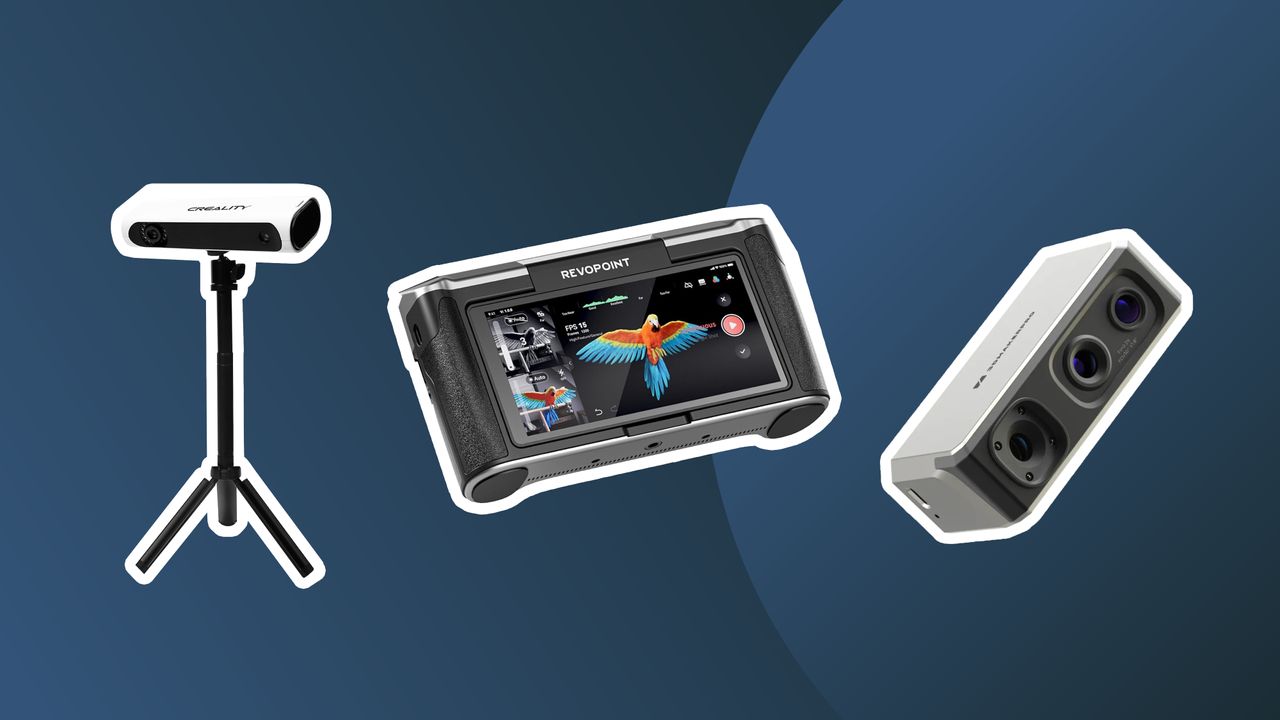
The best 3D scanners allow you to capture the precise details of physical objects and turn them into detailed digital models. But with so many on the market, how do you know which to invest in?
To compile this list, our experts have reviewed and researched a range of models. They've evaluated each one for its build quality, capability, scan size, ease of use, speed and accuracy in order to make their selections.
Our number one pick overall is the Revopoint Miraco Plus, but we've also included more budget-friendly options. You may also be interested in our guide to the best laptops for 3d modelling.
The top 3 3D scanners
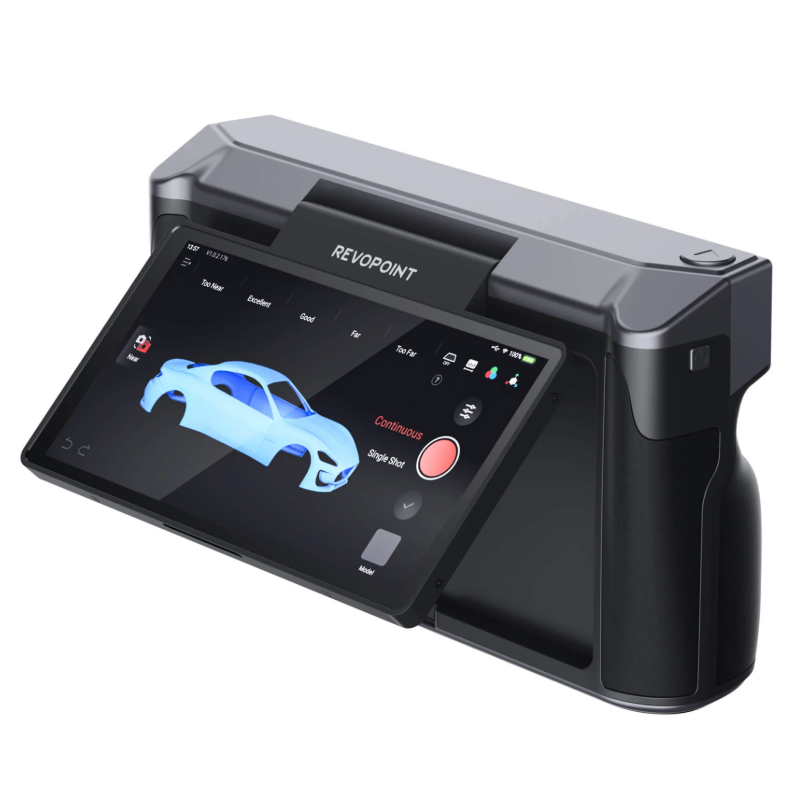
The Revopoint Miraco Plus is one of the first all-in-one photogrammetric metrology and scanning devices on the market, which makes it an impressive competitor in the portable 3D scanner space. It's capable of incredibly accurate scans of large objects.
Read more below
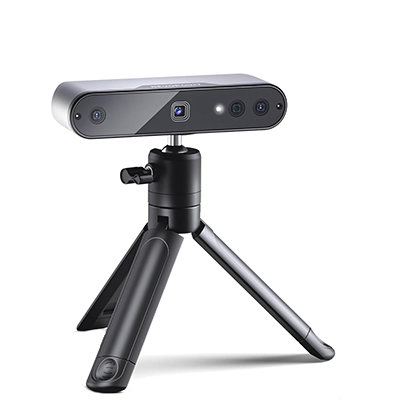
This is a budget wonder. While it's not quite as accurate as some others, it's fast, easy to use, and it's compatible with Android. Best of all, the price is among the most reasonable we've seen.
Read more below
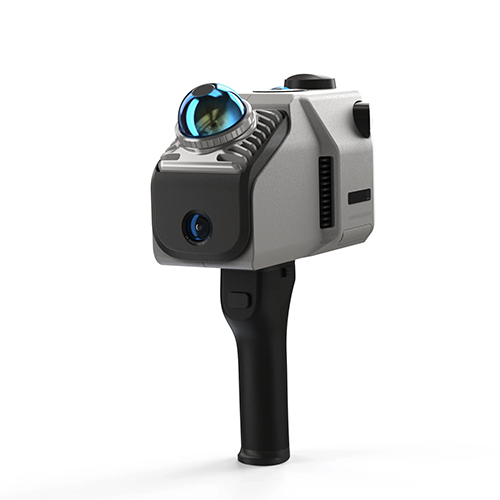
With its 2cm accuracy and ability to scan large spaces up to 140m, this LiDAR-based scanner offers professional-grade capabilities at a fraction of the cost of high-end alternatives.
Read more below
The best 3D scanners in full
The best 3D scanner overall
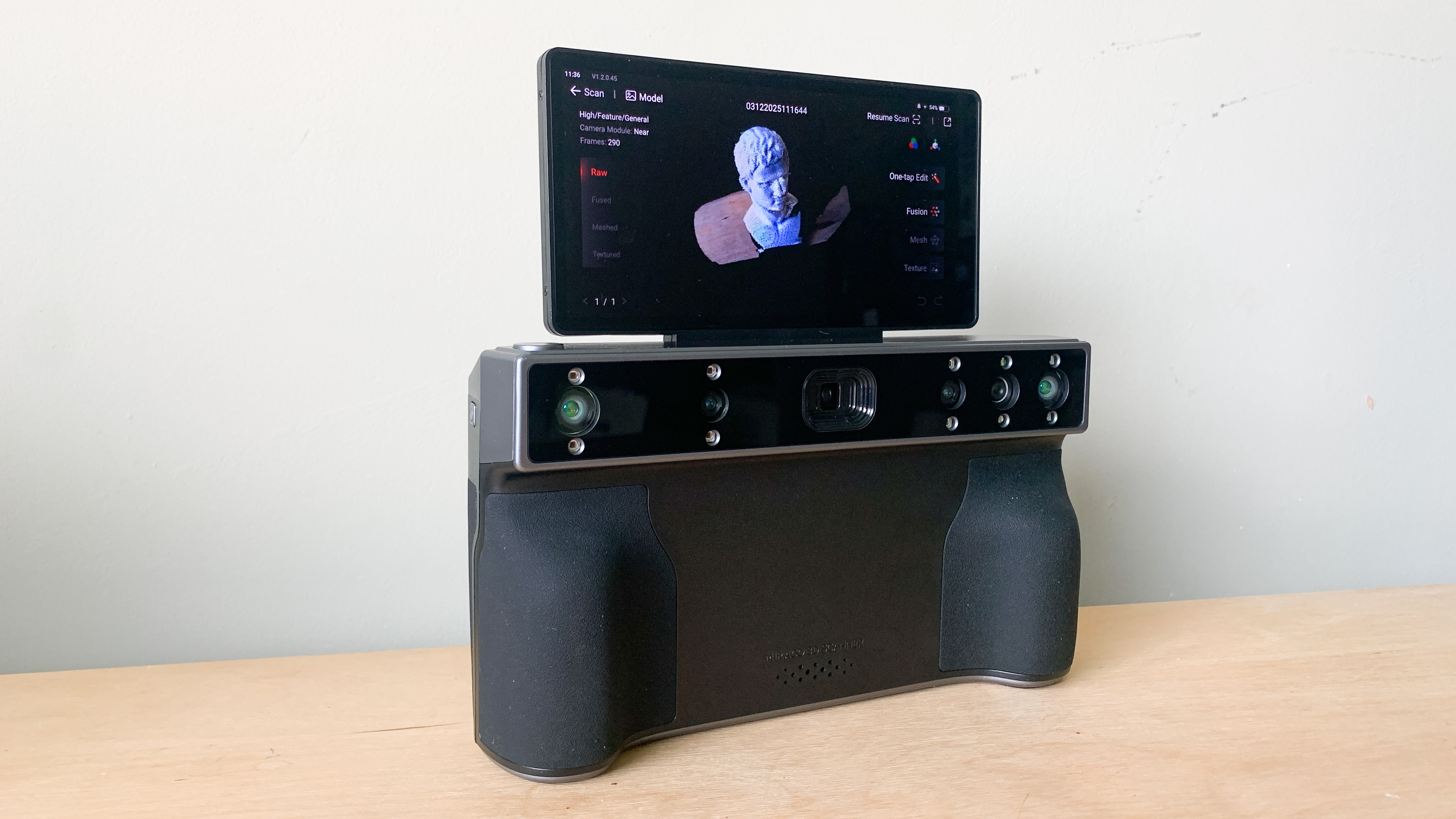
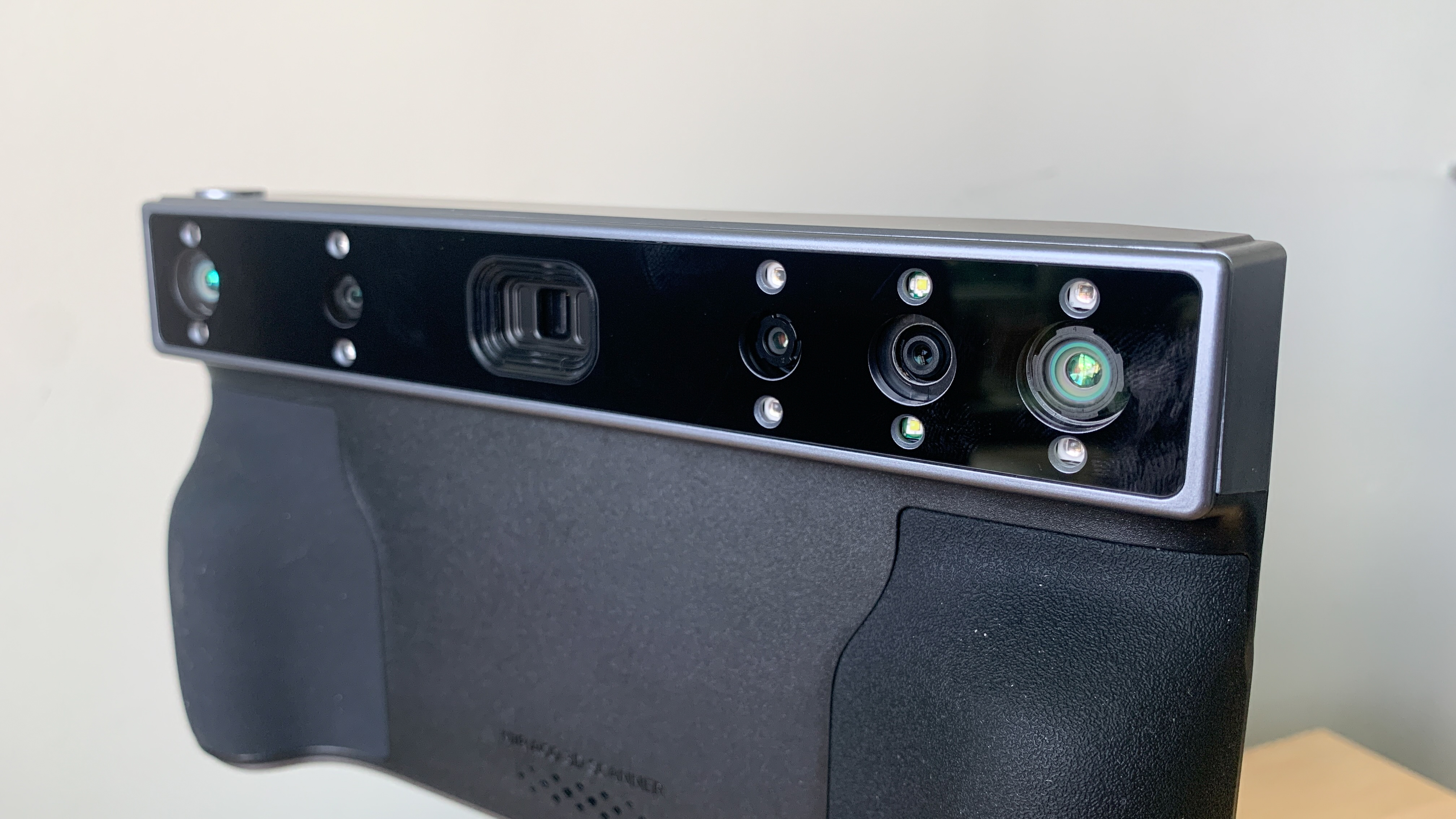
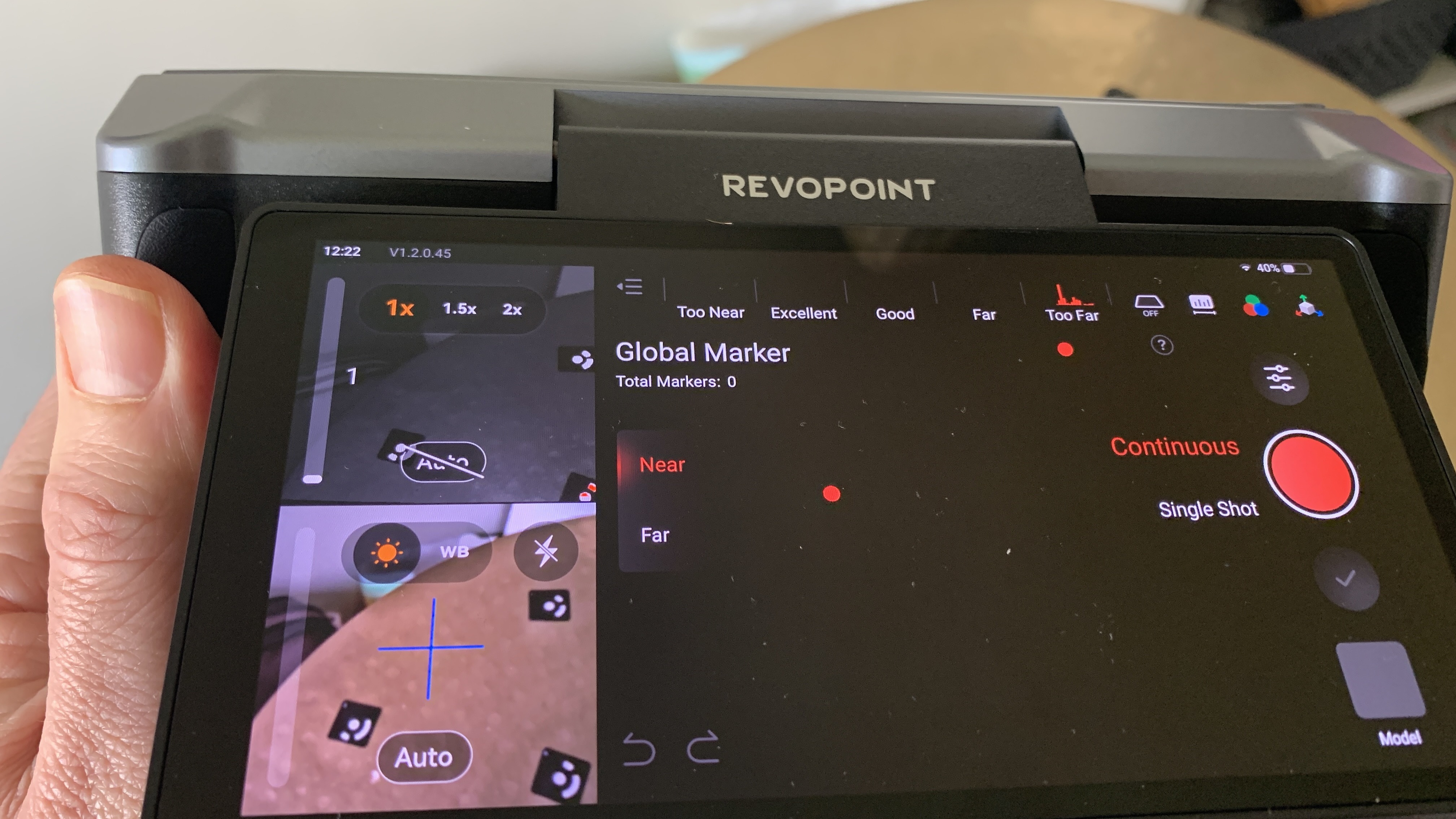
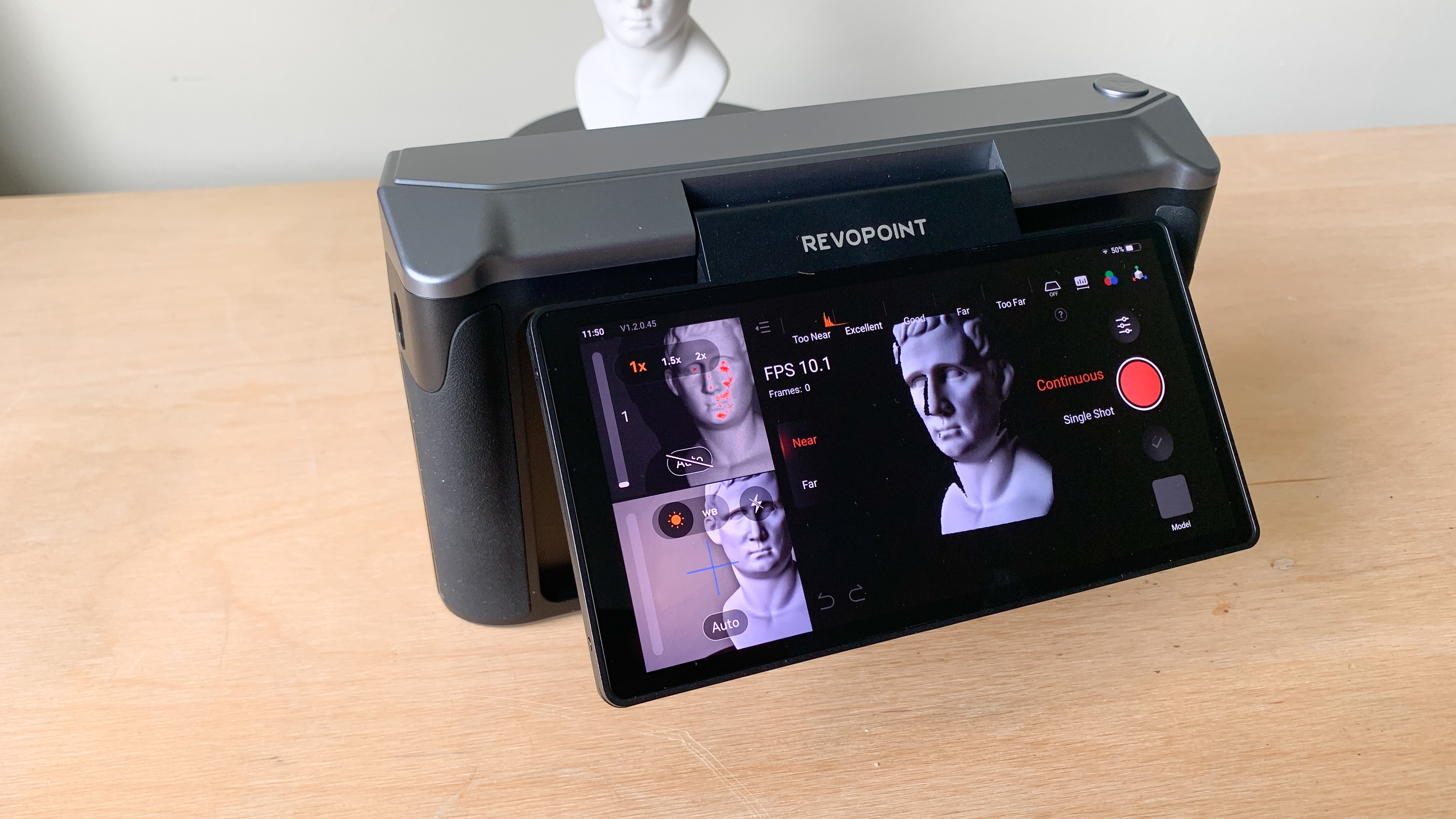

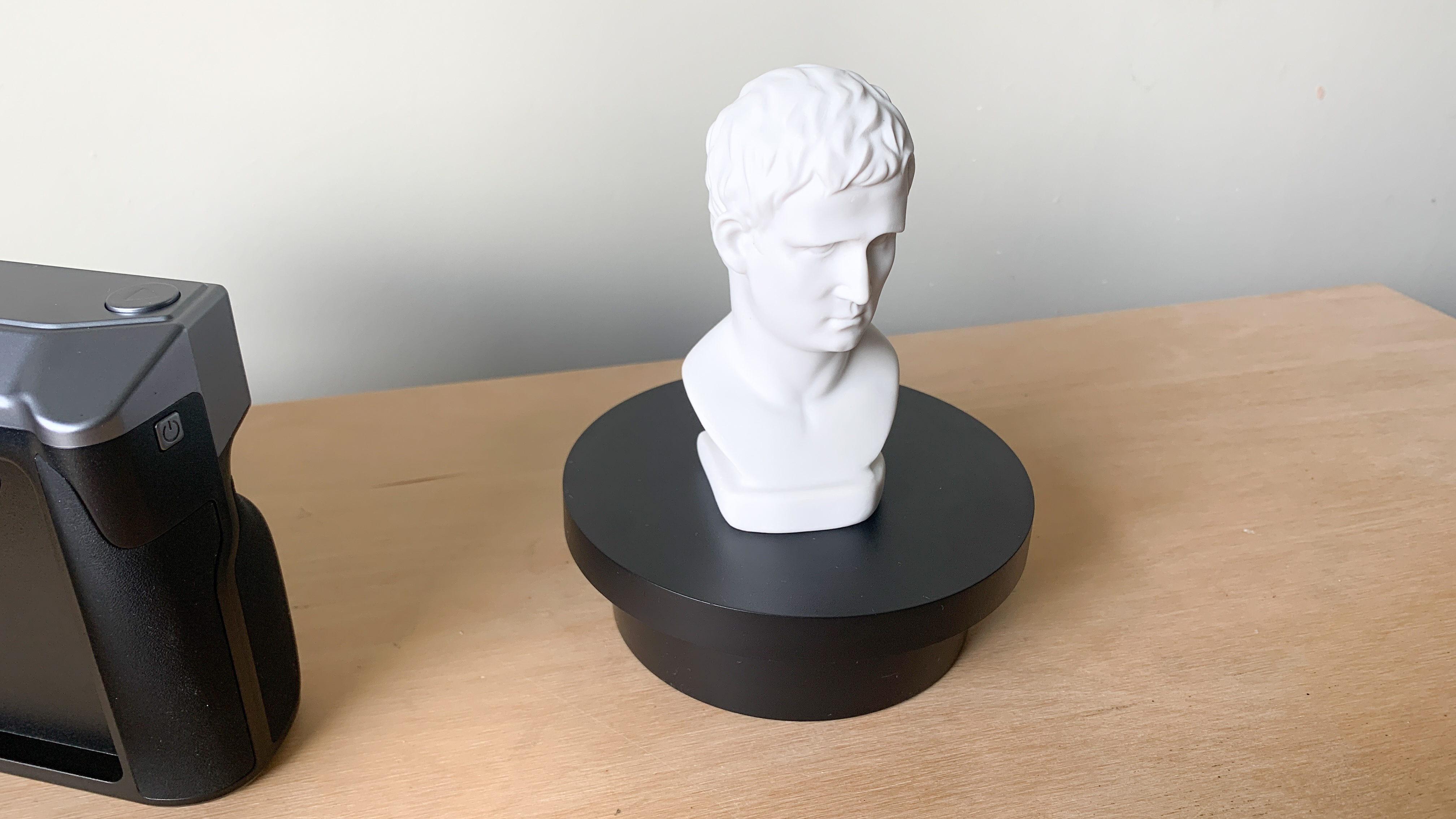
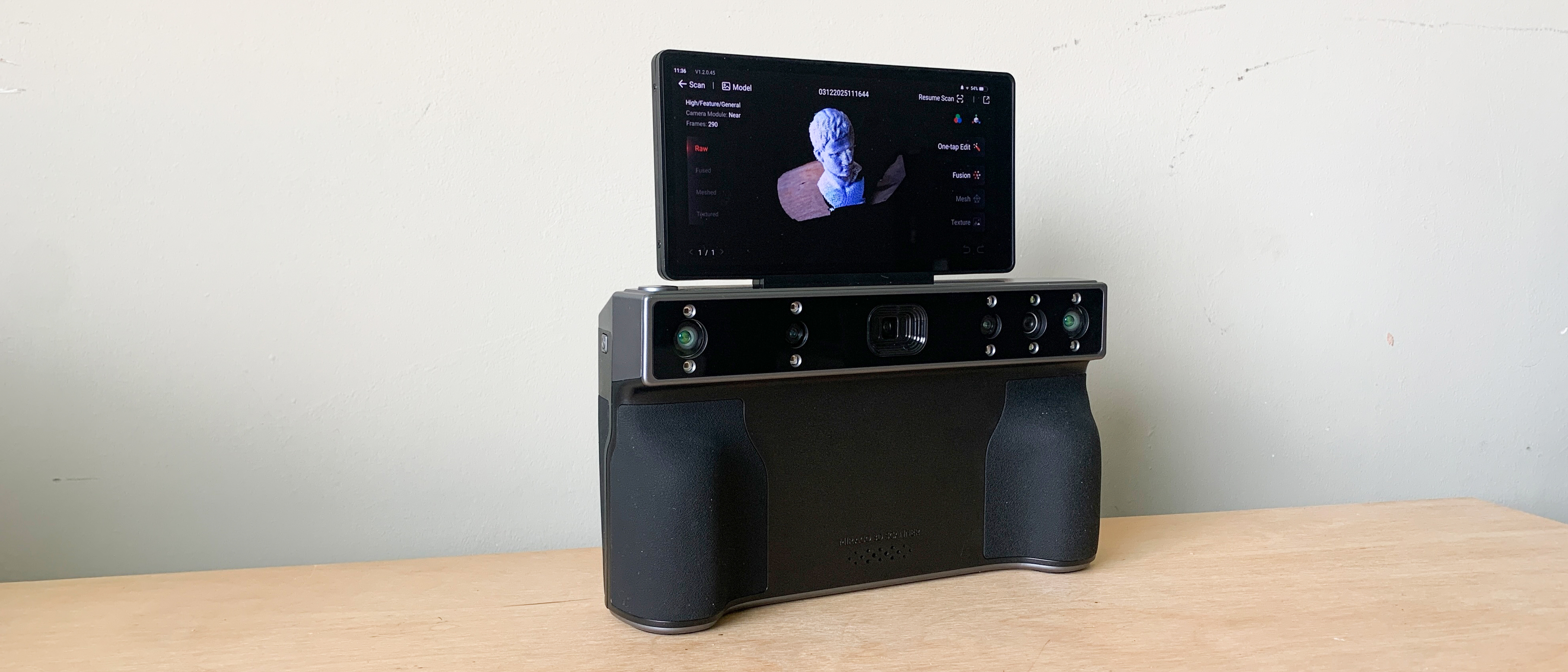

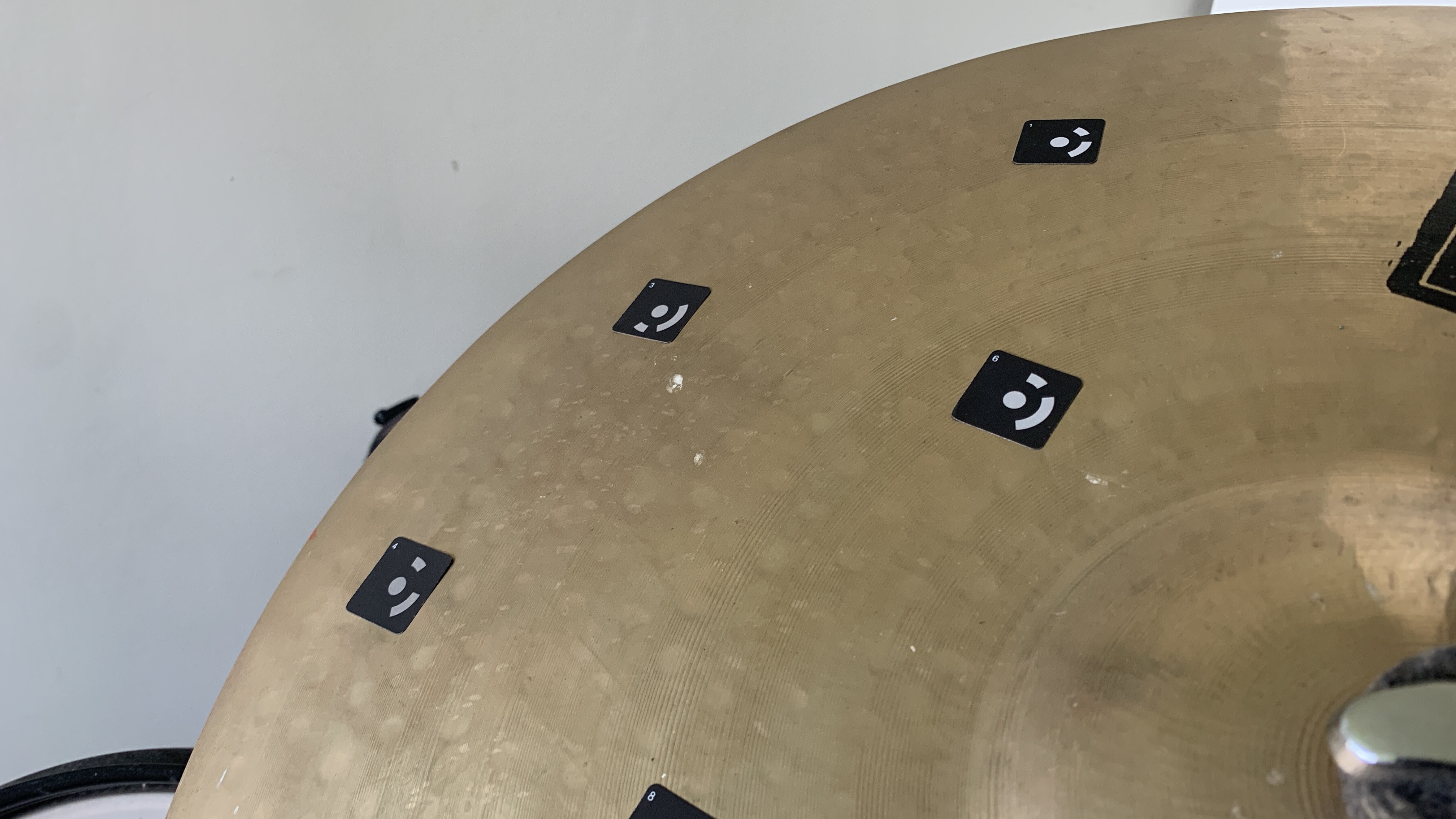
30-second review: The Revopoint Miraco Plus is an excellent all-in-one photogrammetric metrology and 3D scanning device, with excellent accuracy and a flip-out screen on a top-mounted hinge, which our reviewer found to be particularly impressive, making the scanner easier to work with. Though the workflow—especially for larger items—can be fiddly and time-consuming due to the need for marker placement, the results are unmatched in detail and precision. Its performance, flexibility, and thoughtful accessories like magnetic targets and a turntable make it a top-tier option for serious creators.
Pricing: This scanner has a retail price of $2,119 / £1,750, though current market prices show it available for around $1799 / £1,600. That's a significant investment, making it primarily suitable for professionals and serious hobbyists who require metrology-grade scanning capabilities for larger objects.
Features: The Miraco Plus ships with a photogrammetric metrology kit (PMK), which aims to build upon the original structured infrared light system with quadruple depth cameras that was found on the standard Miraco model (which we have also reviewed). It's great for those wanting to scan larger and more complex objects. This scanner is equally adept at capturing small/medium objects, however, which makes it a one-stop solution for those who don’t want to own different scanners for different-sized objects.
The best budget 3D scanner
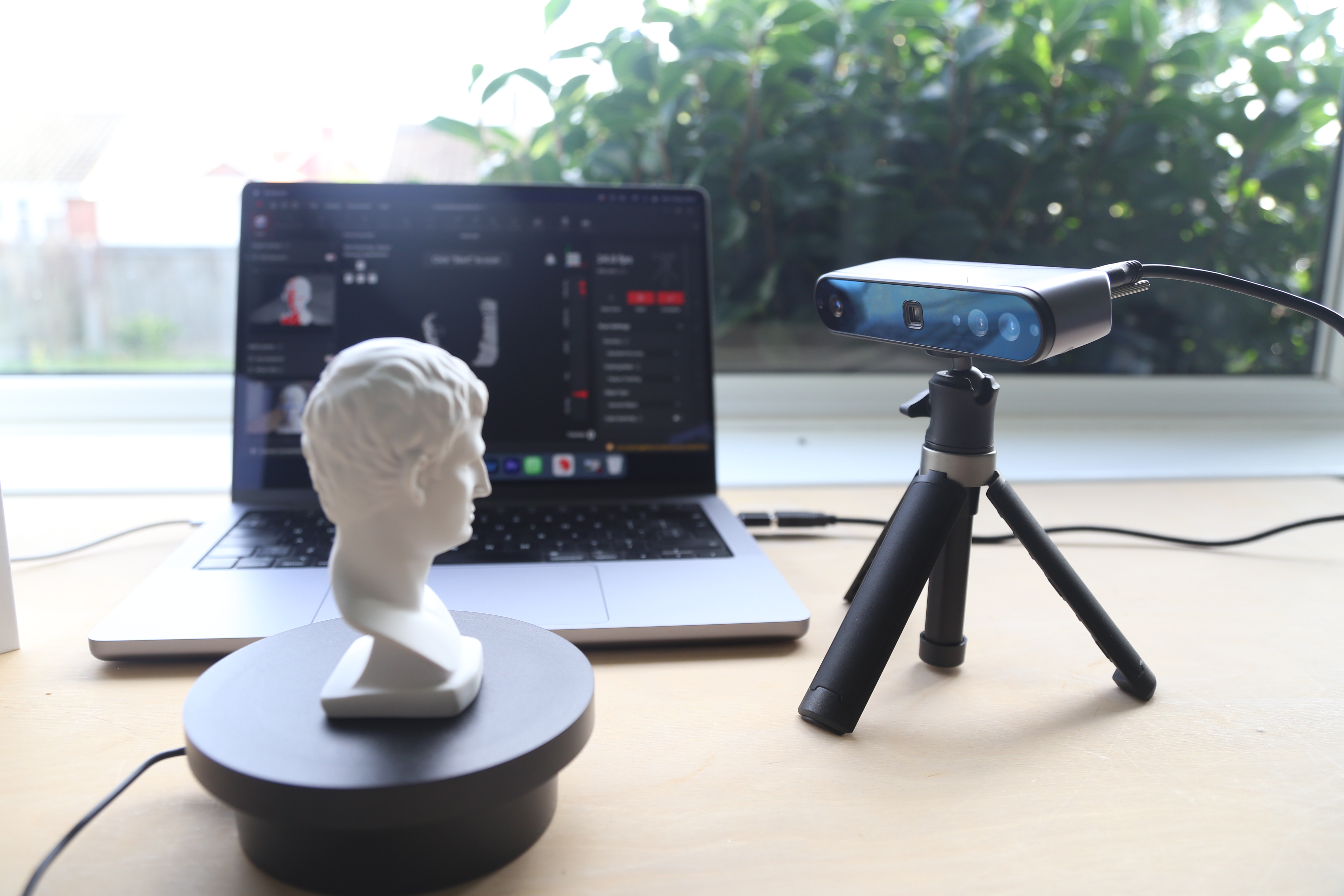
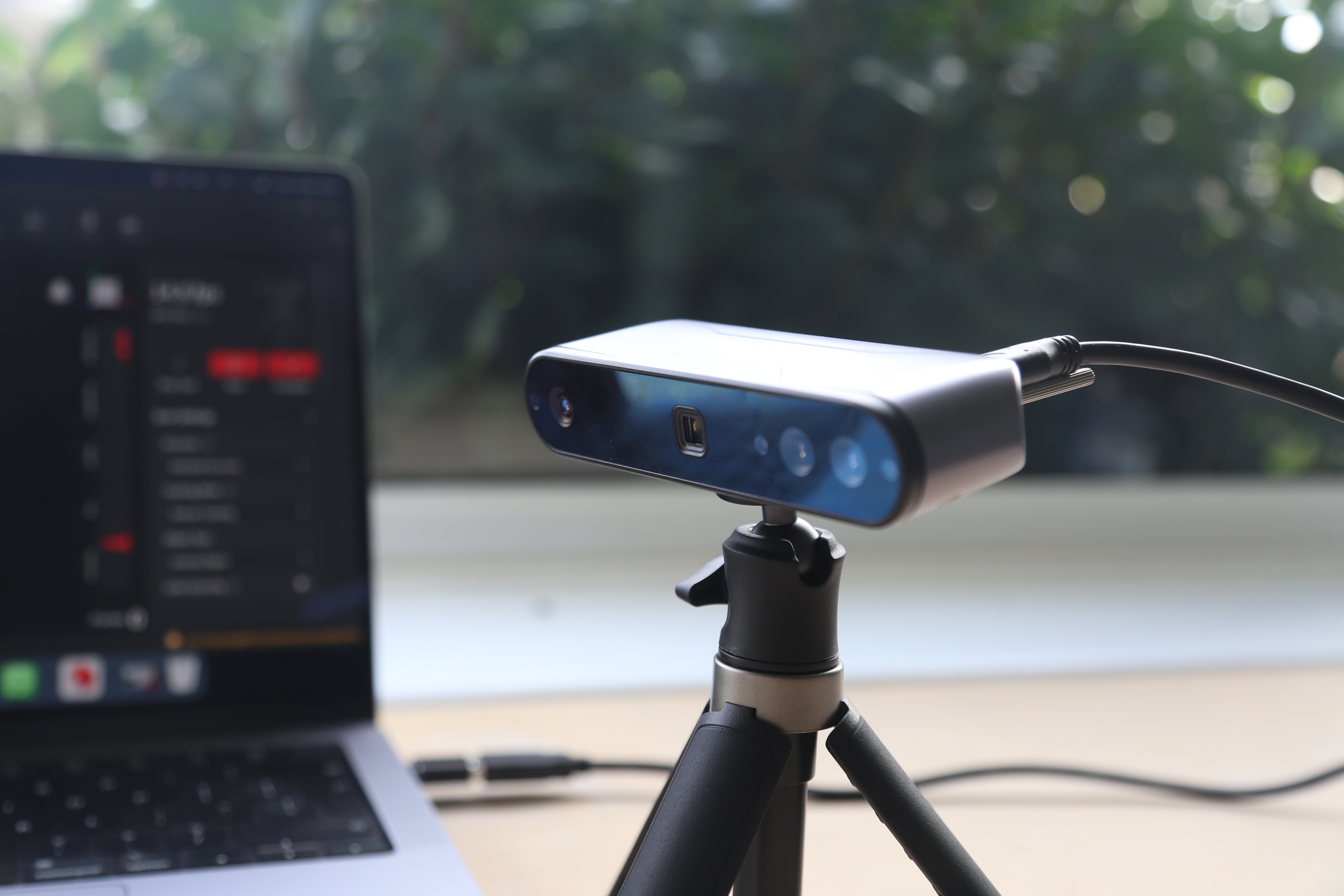
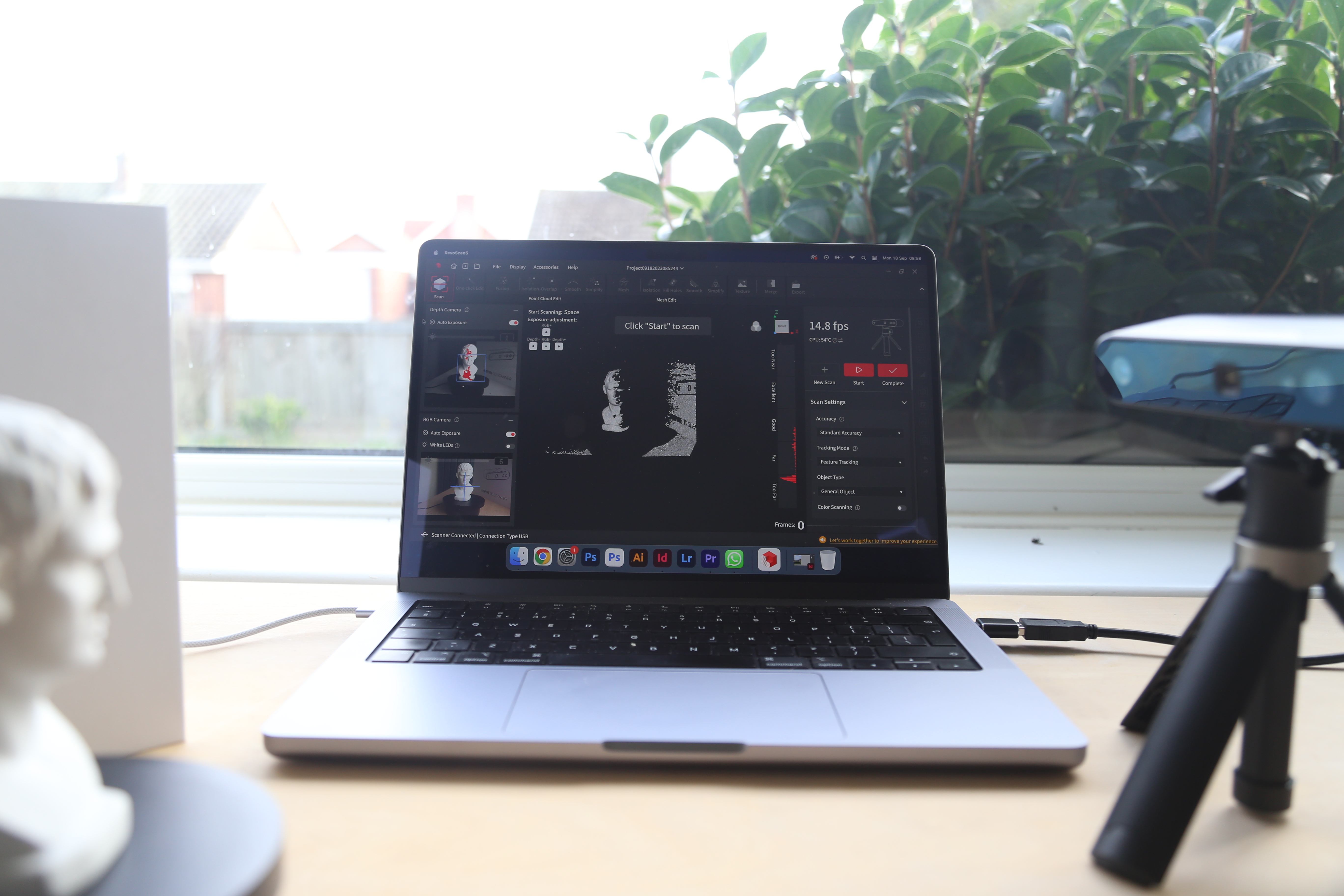
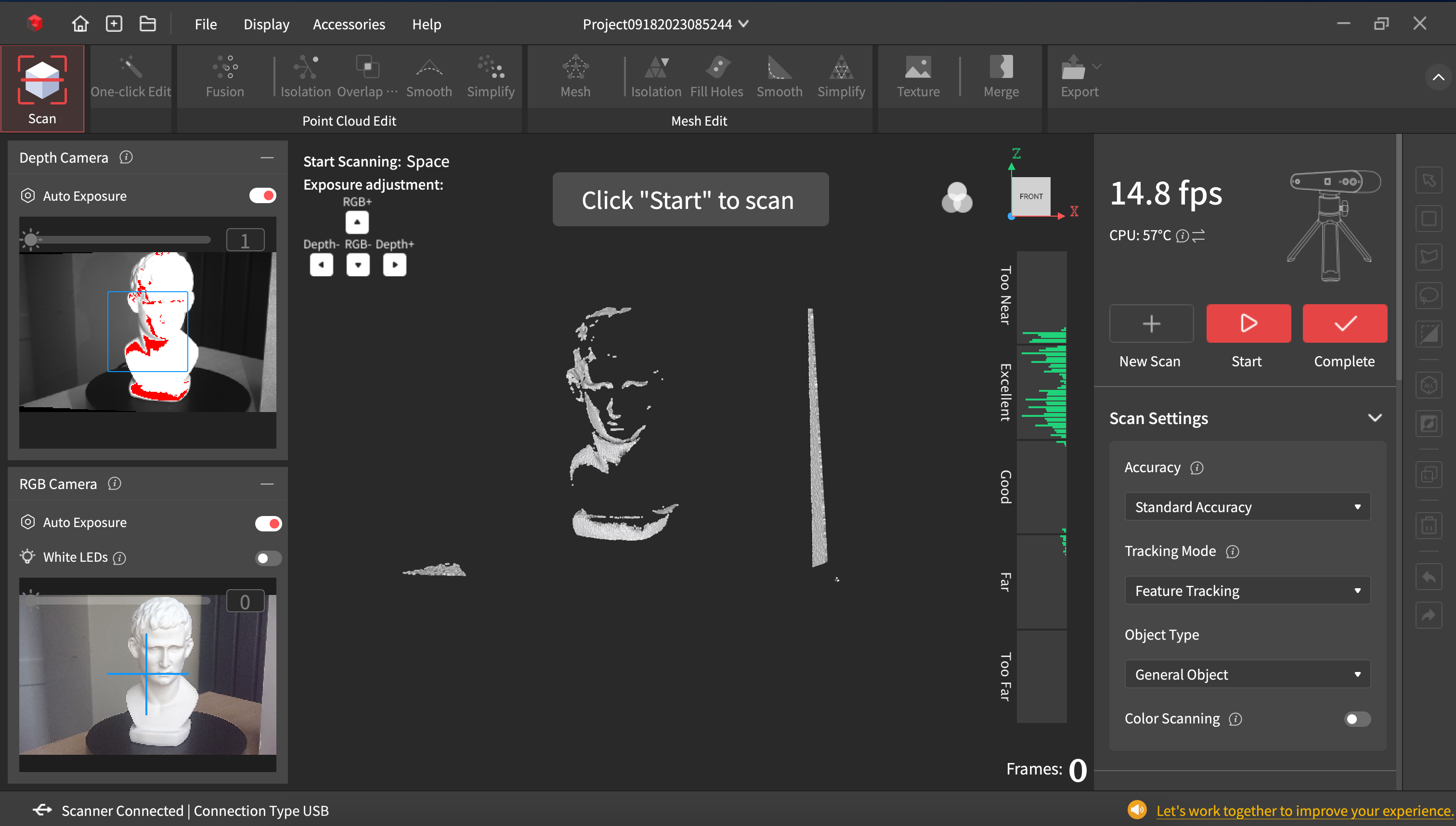
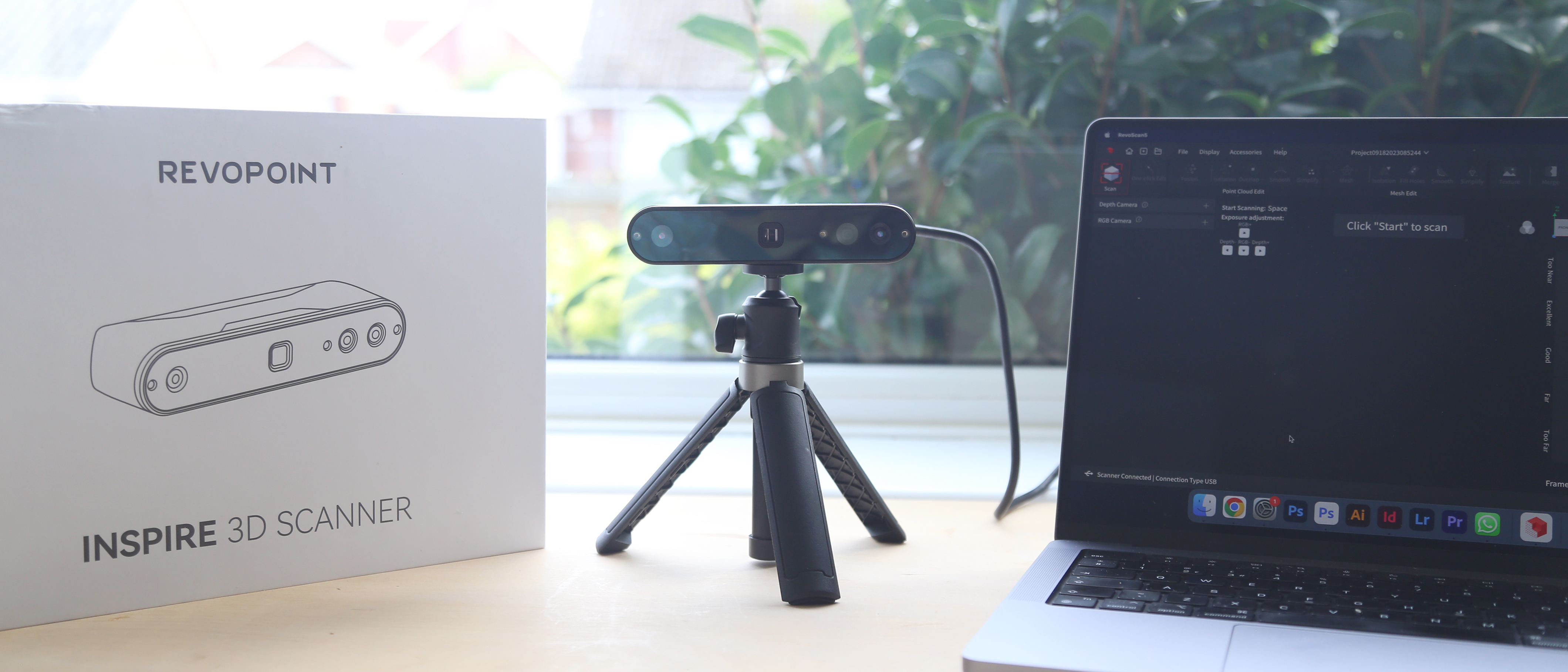
30-second review: This compact, affordable entry-level 3D scanner is aimed squarely at beginners and hobbyists. While its 0.2mm single-frame accuracy isn’t top-tier, it’s more than adequate for casual use, especially for scanning medium-sized objects for 3D printing or scene building. The INSPIRE works seamlessly with Revopoint’s RevoScan software across desktop and mobile, and even includes texture capture via an RGB camera. It lacks premium features like built-in exposure controls or a carry case, but its portability, ease of use, and low price make it an ideal starting point for newcomers to 3D scanning.
Pricing: This scanner retails for around $449 / £363 and is typically available with free delivery. This makes it an excellent entry-level choice for those wanting to explore 3D scanning without a significant financial commitment.
Features: We found connecting either to a PC or, for true portability, an Android phone, to be straightforward, and the device offers pretty nifty capture speeds for the price at 14-18 fps, faster than the 3DMakerpro Seal 3D, which is a little more expensive. With the lower level of precision, we did find that this option took a bit more trial and error to get the results we wanted, but if you're prepared to persevere, it offers portability and reasonable speed for a very attractive price.
See our full Revopoint INSPIRE 3D Scanner review for more details.
The best 3D scanner for value
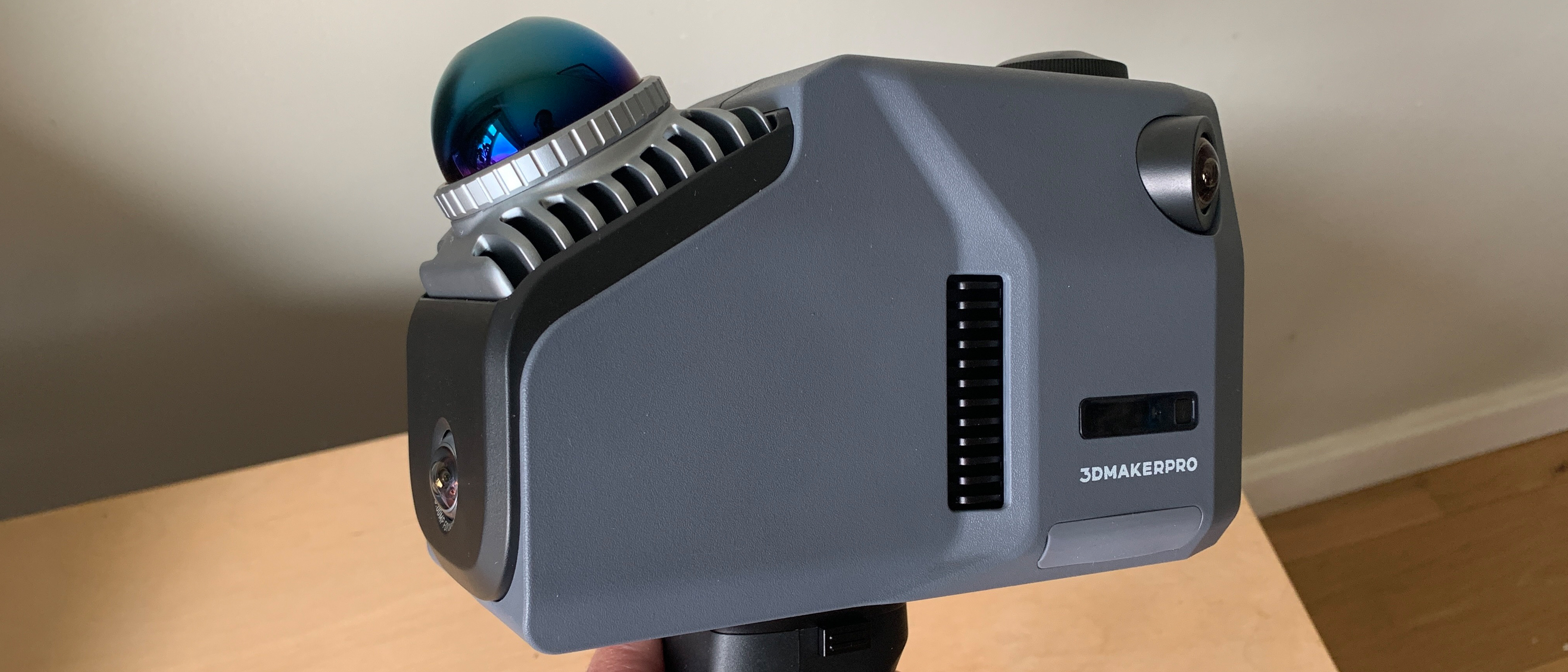
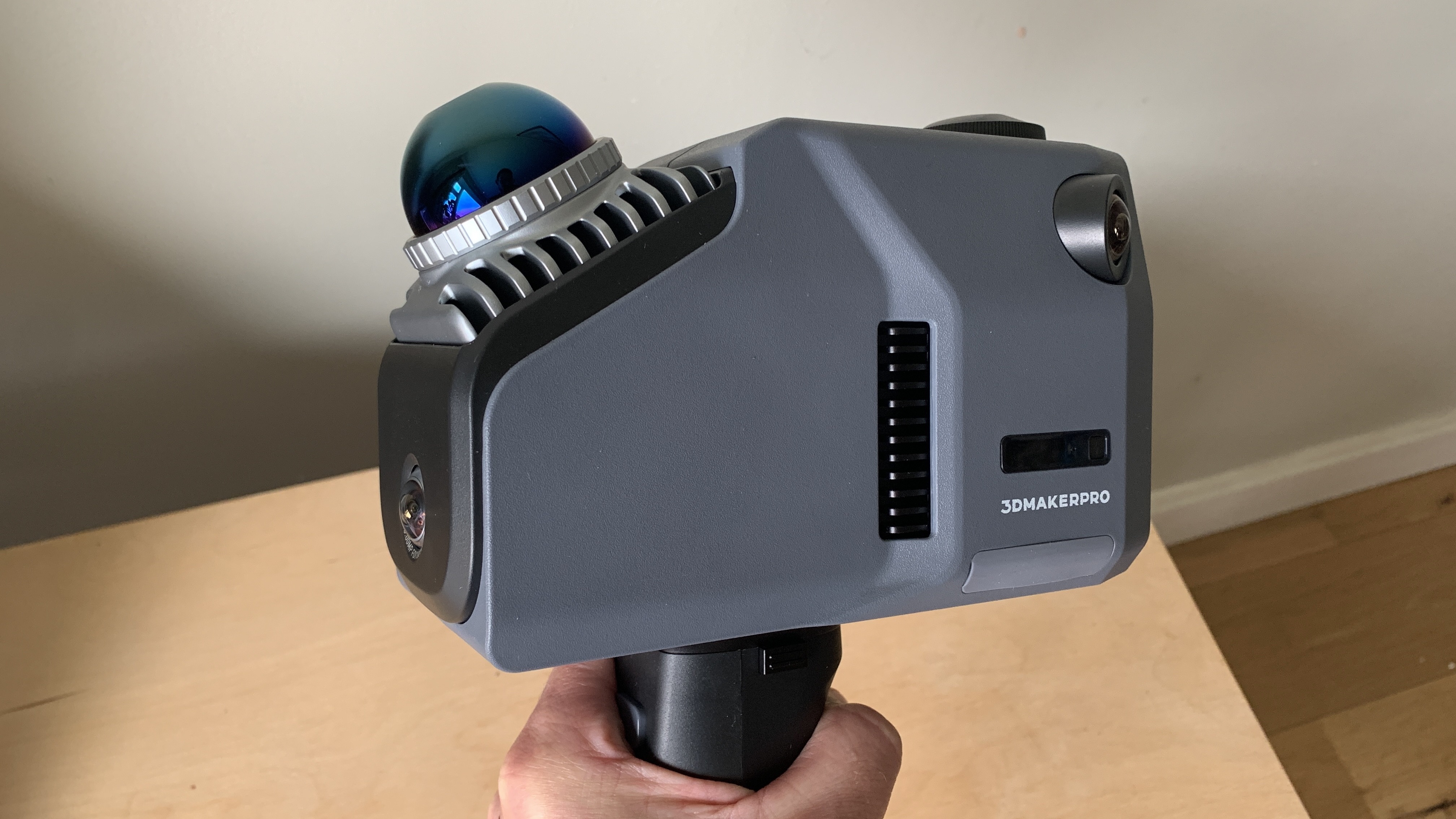
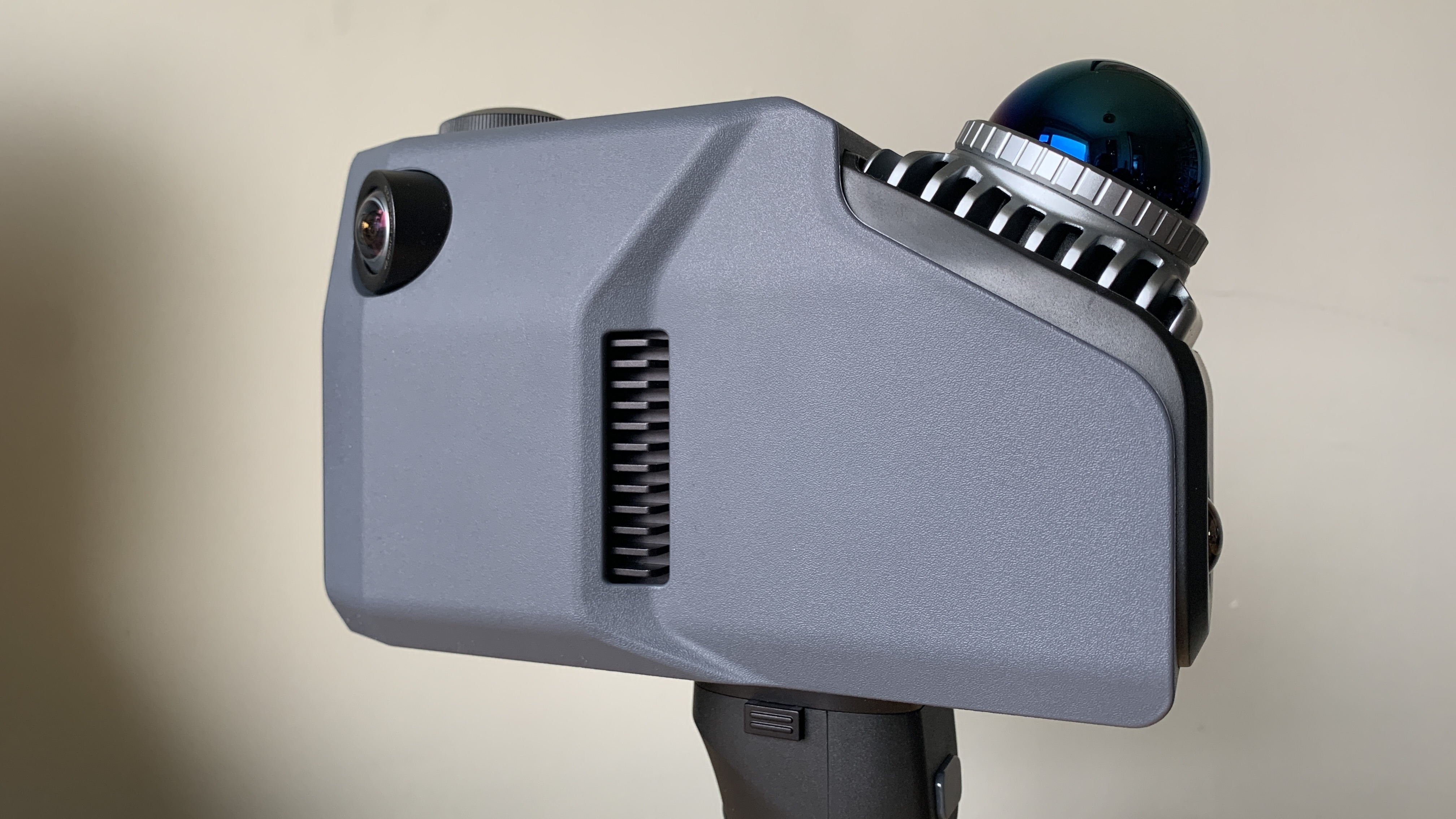
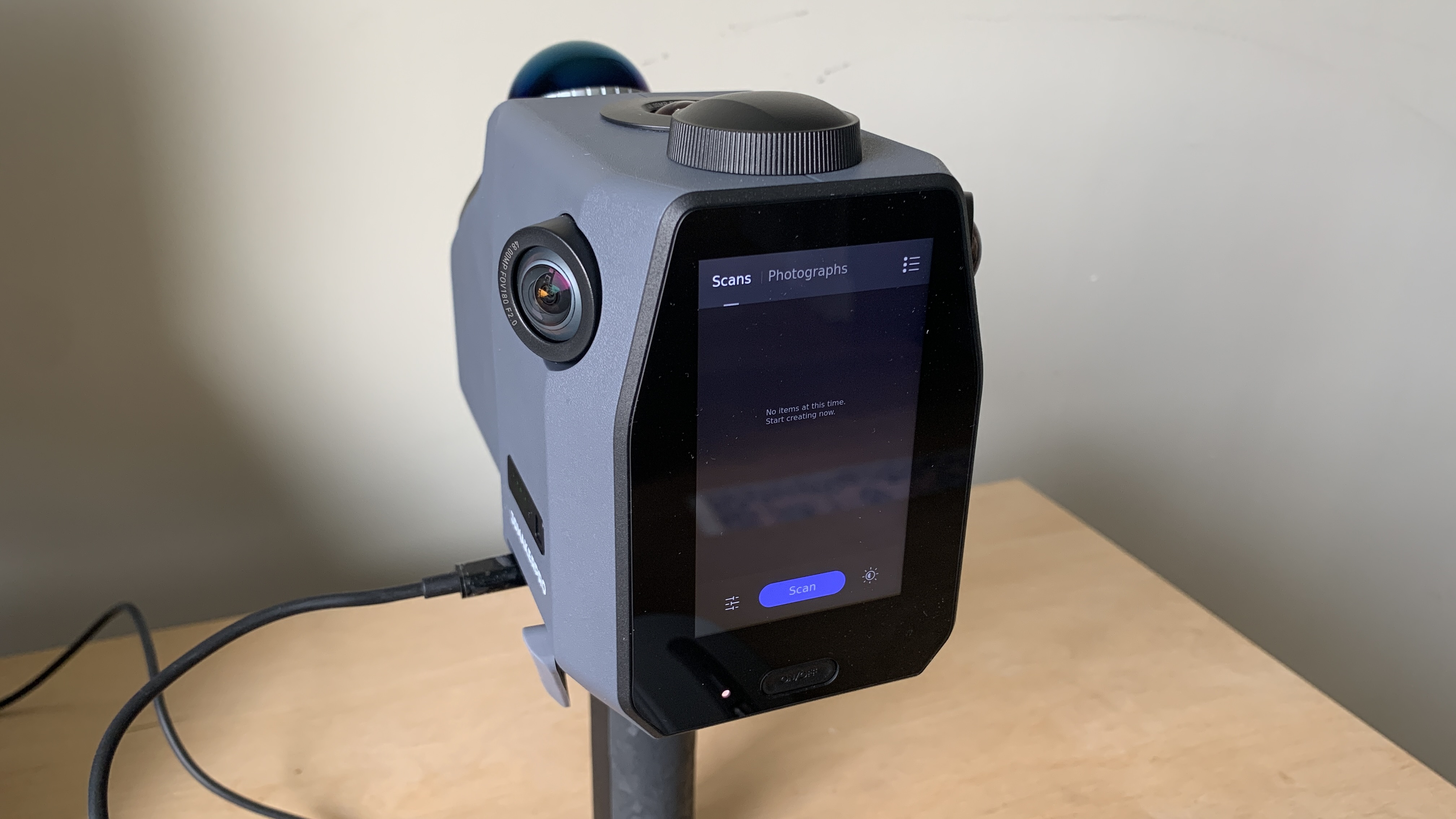
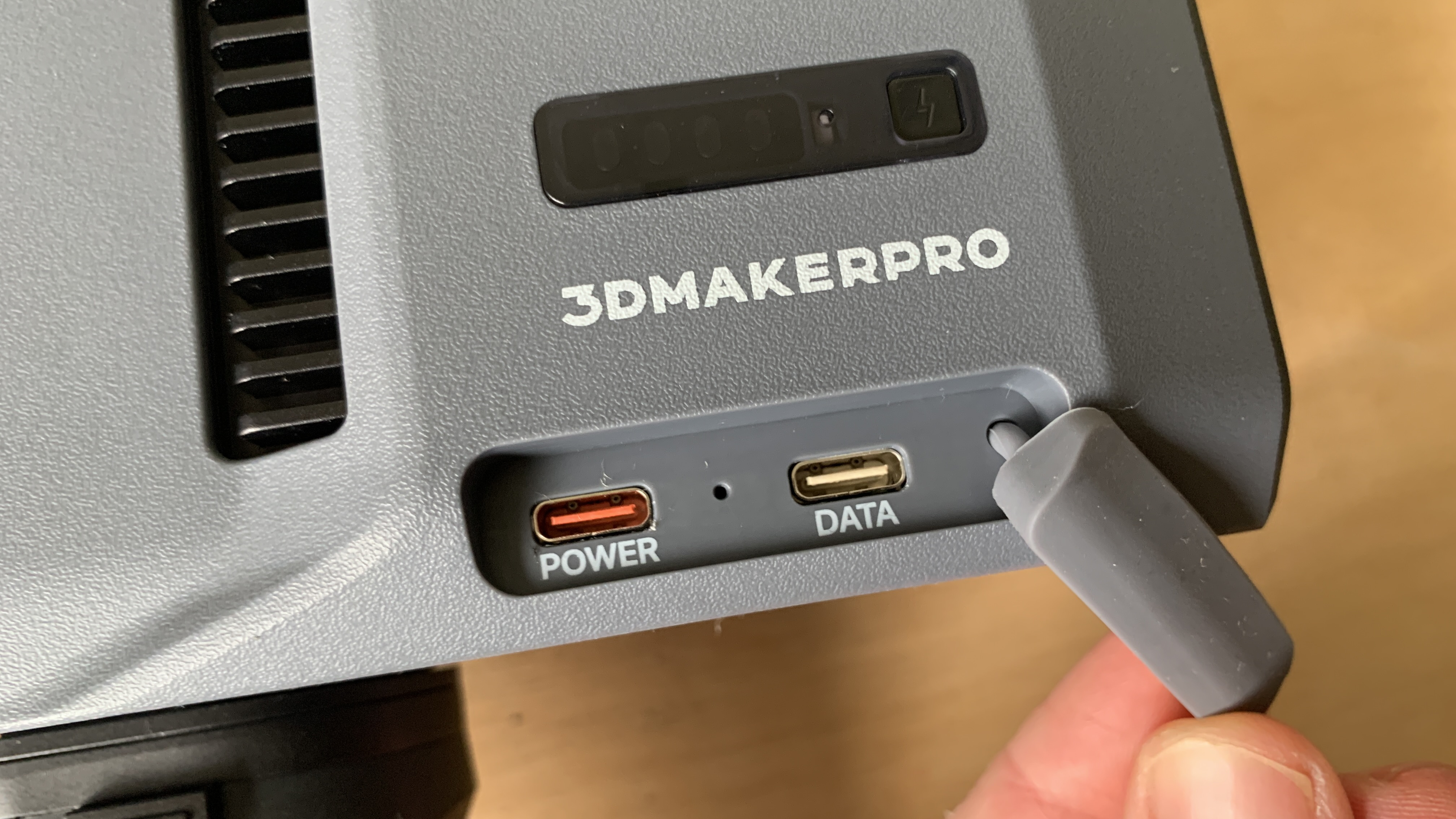
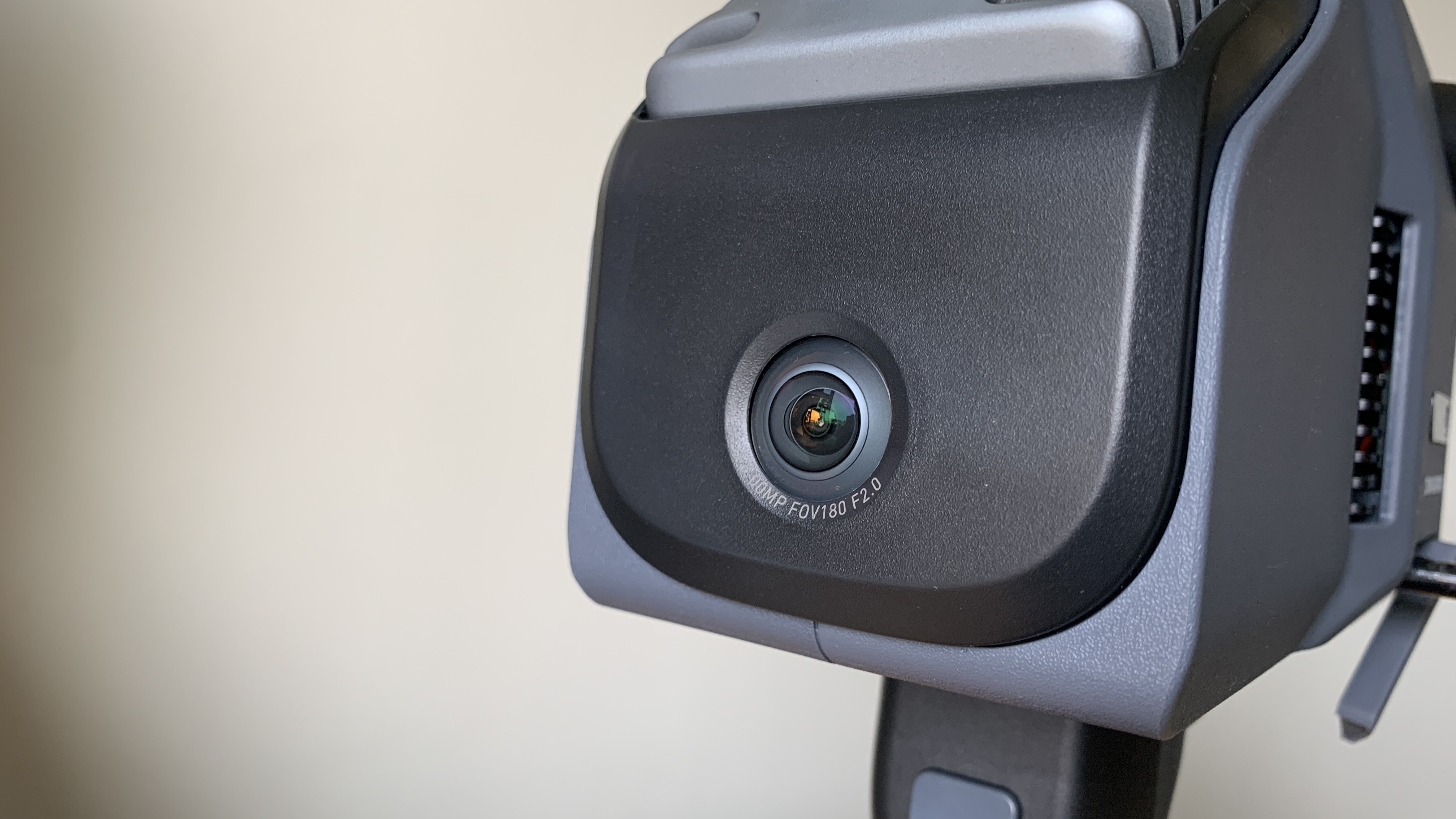
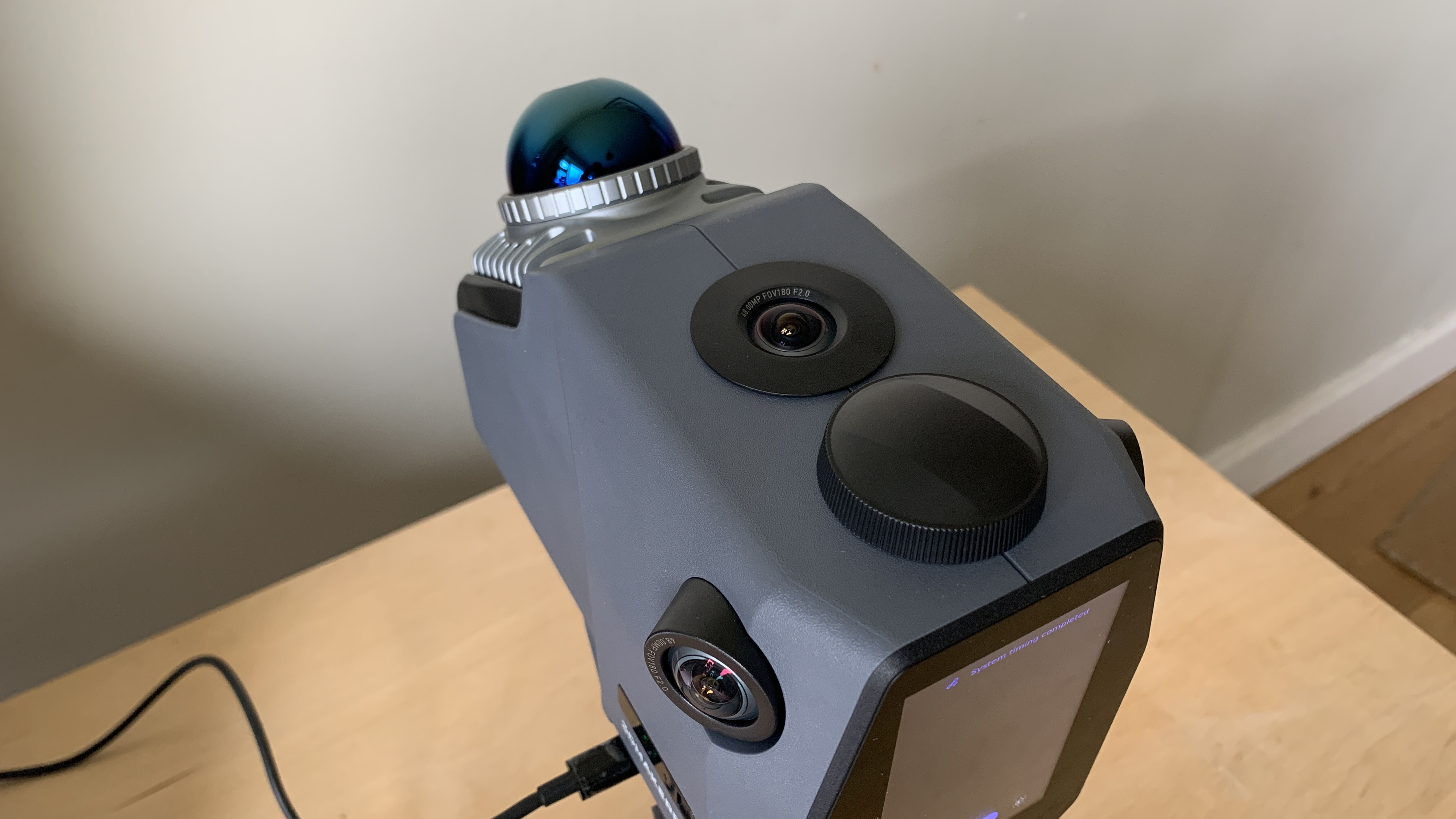
30-second review: The 3DMakerPro Eagle represents exceptional value in the LiDAR scanning market, offering professional-grade capabilities at a fraction of the cost of traditional alternatives. Whilst budget scanners focus on basic functionality, this model delivers advanced LiDAR technology, multiple high-resolution cameras, and the ability to scan large spaces with impressive 2cm accuracy. That means it will excel at architectural surveying, film production, and creating detailed point clouds of buildings and large objects.
Pricing: The Eagle is available in two models: the Standard version with one camera retails for $3,499 (£2,592) with limited pre-order pricing at $1,799, whilst the Max version with four 48MP cameras costs $4,399 (£3,260) with pre-order pricing at $2,299. This represents remarkable value compared to professional LiDAR scanners that typically cost upwards of $10,000/£10,000.
Features: The Eagle's LiDAR system delivers extensive scanning capabilities with exceptional precision and coverage angles. It provides a scanning radius of up to 70 metres under 80% reflectivity conditions and achieves scanning accuracy of up to 2cm at a 10-metre distance. The four-camera Max model captures 8K imaging for detailed colour data and texture mapping, making it ideal for creating comprehensive 3D models of large spaces. The scanner includes a 3.5-inch colour display for real-time preview and ships with a professional hard carry case with custom foam inserts.
Its continuous scanning mode allows efficient data capture whilst moving through spaces, perfect for surveying multiple rooms or large outdoor areas. Despite some minor inconveniences like noisy fans and awkward microSD card placement, the scanner's robust build quality, comprehensive feature set, and professional results make it an outstanding choice for those needing serious scanning capabilities without the premium price tag.
The best hybrid 3D scanner
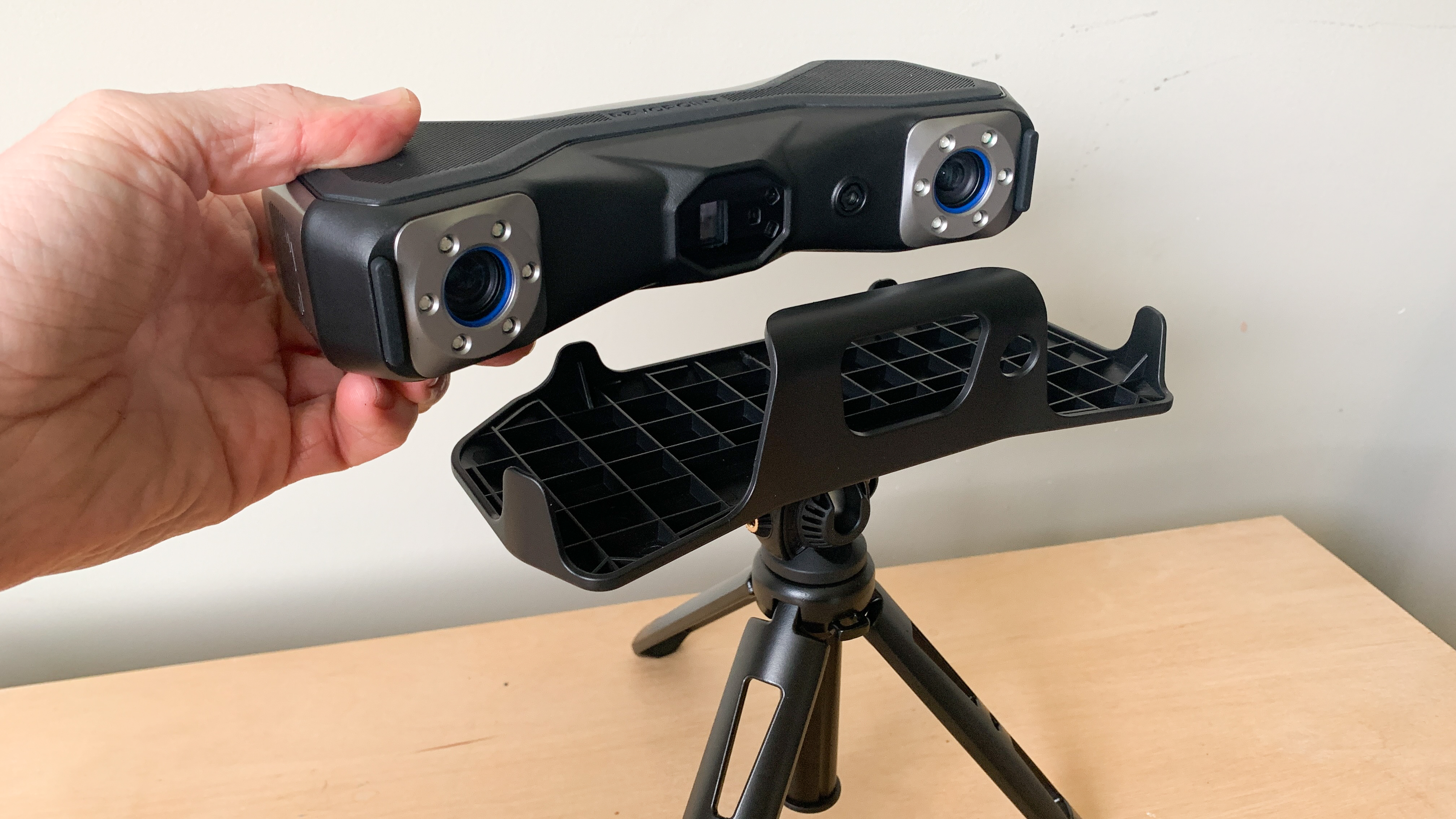
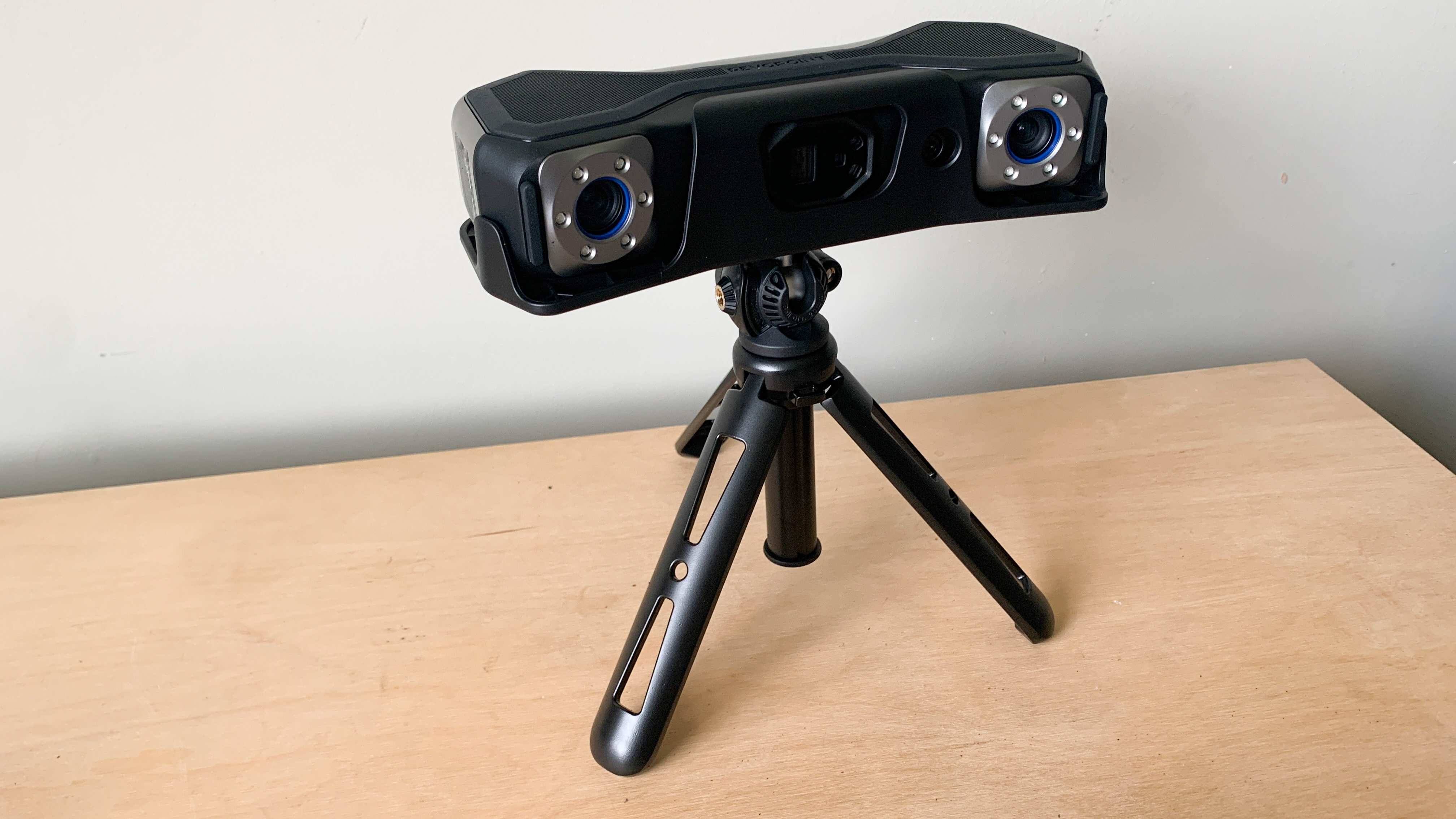
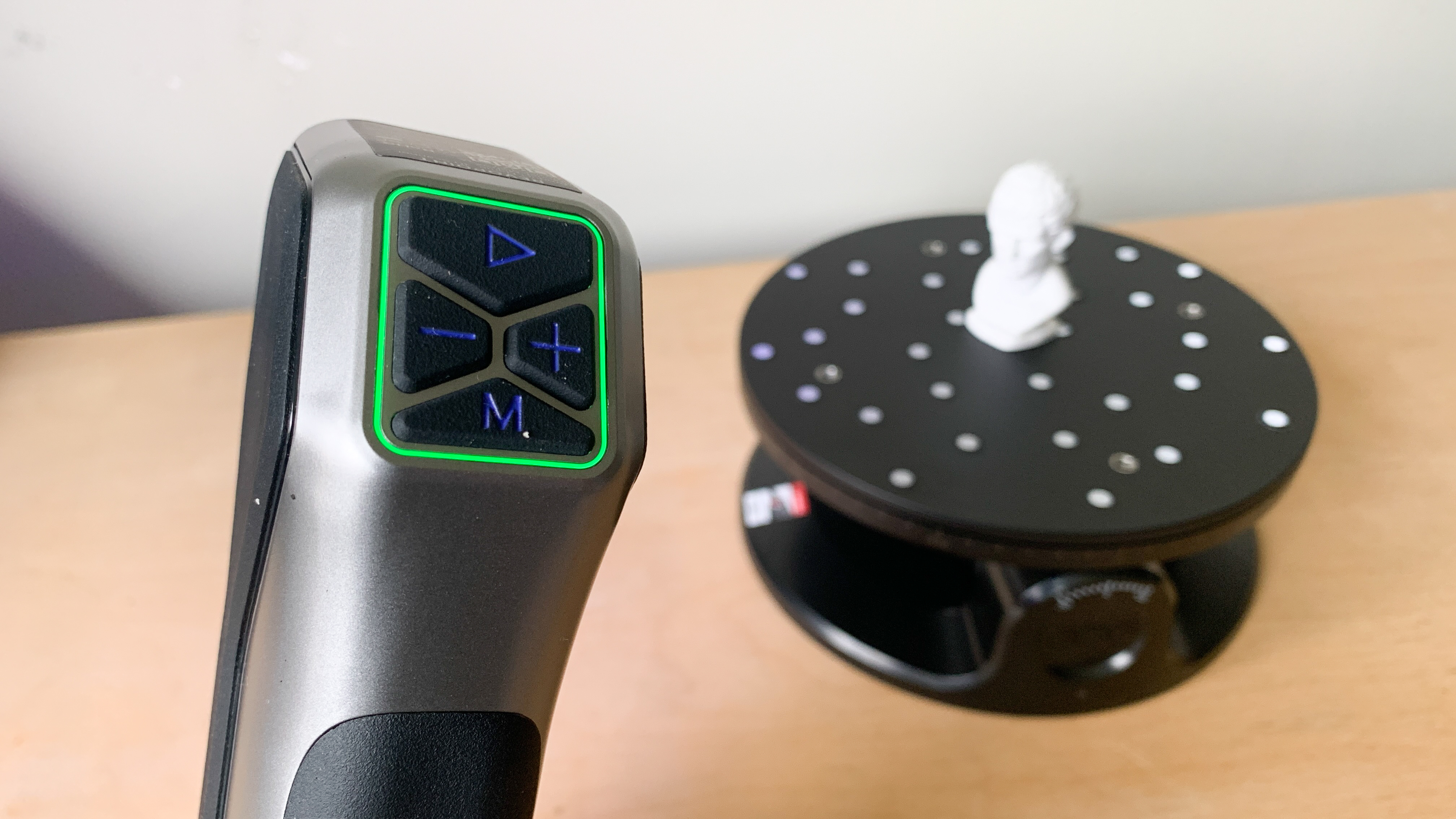
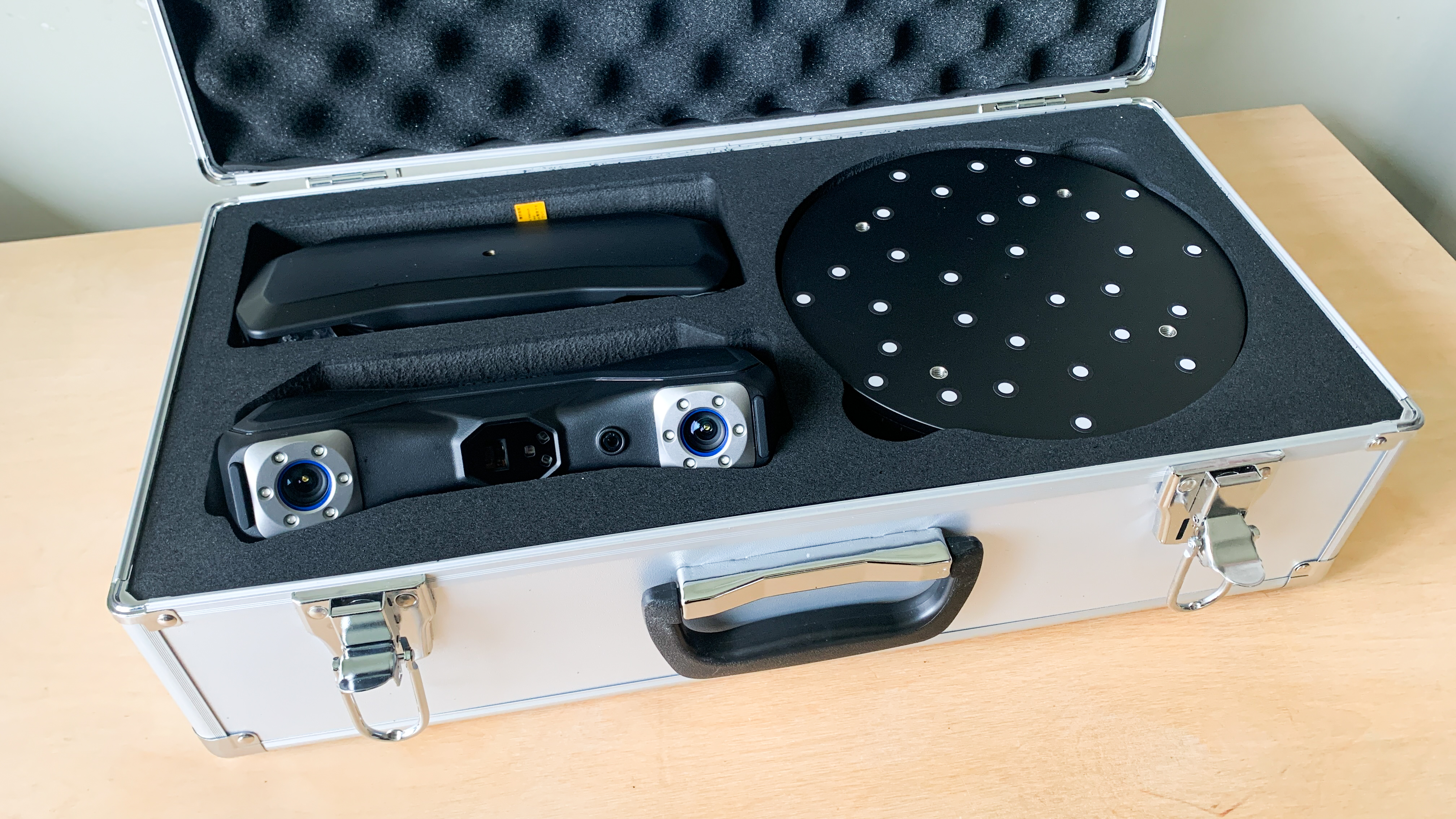
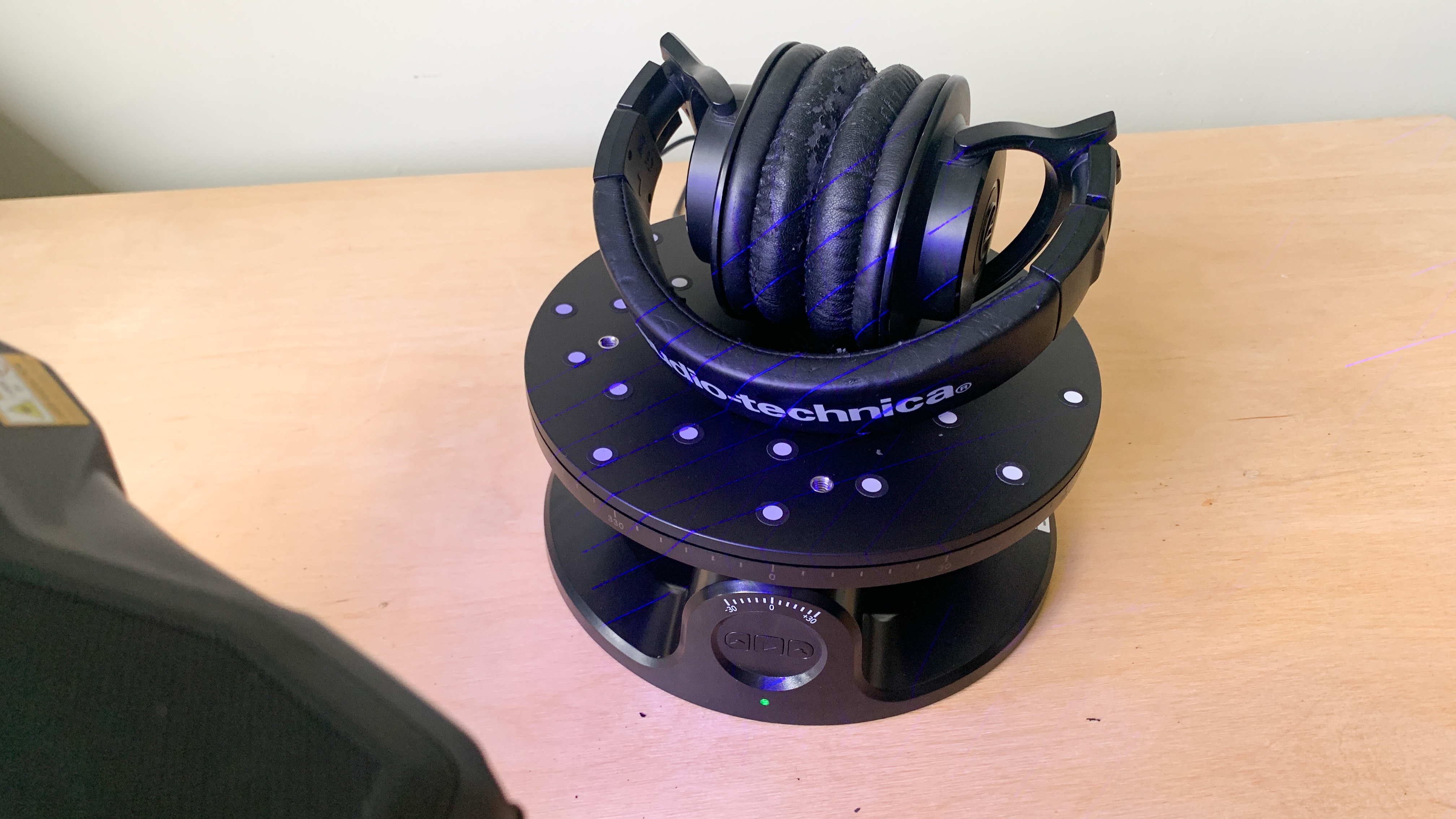
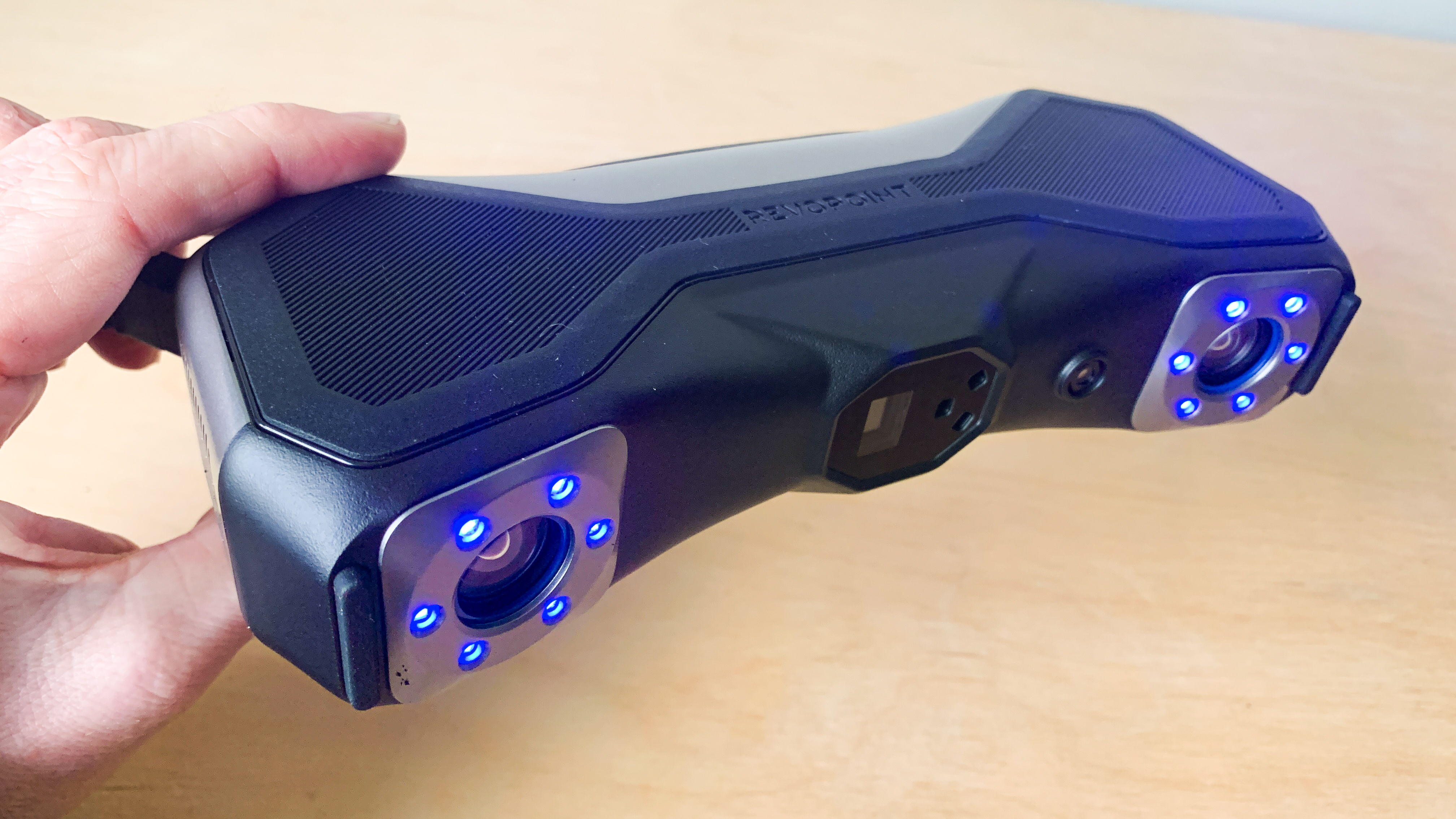
30-second review: This is a high-end 3D scanner aimed at professionals working with small to medium-sized objects. It combines full-field structured light and laser scanning for accurate results, and includes a well-designed automated turntable that streamlines the process. While it handles matte black surfaces better than most, shiny objects still typically require scan spray. Its robust build, reliable performance, and versatile modes make it ideal for reverse engineering and precision work, though it's too pricey for casual users.
Pricing: The MetroX retails at a high price of $1,099 / £959, making it a hefty purchase for beginners. However, even at this price point, it’s still more affordable than competitors like the Creality CR-Scan Raptor.
Features: The MetroX is surprisingly robust and durable despite its lightweight construction, and packs the power for pro-level scanning thanks to its full-field, and laser-based scanning technology. It's a well-built and full-field structured light 3D scanner, that offers a fully featured blue laser line. These types of laser scanning modes available with the MetroX deliver accurate results, and our reviewer loved the included automated turntable for establishing an easy workflow and the guaranteed accurate results that you get.
See our full Revopoint MetroX review for more details.
The best pocket 3D scanner
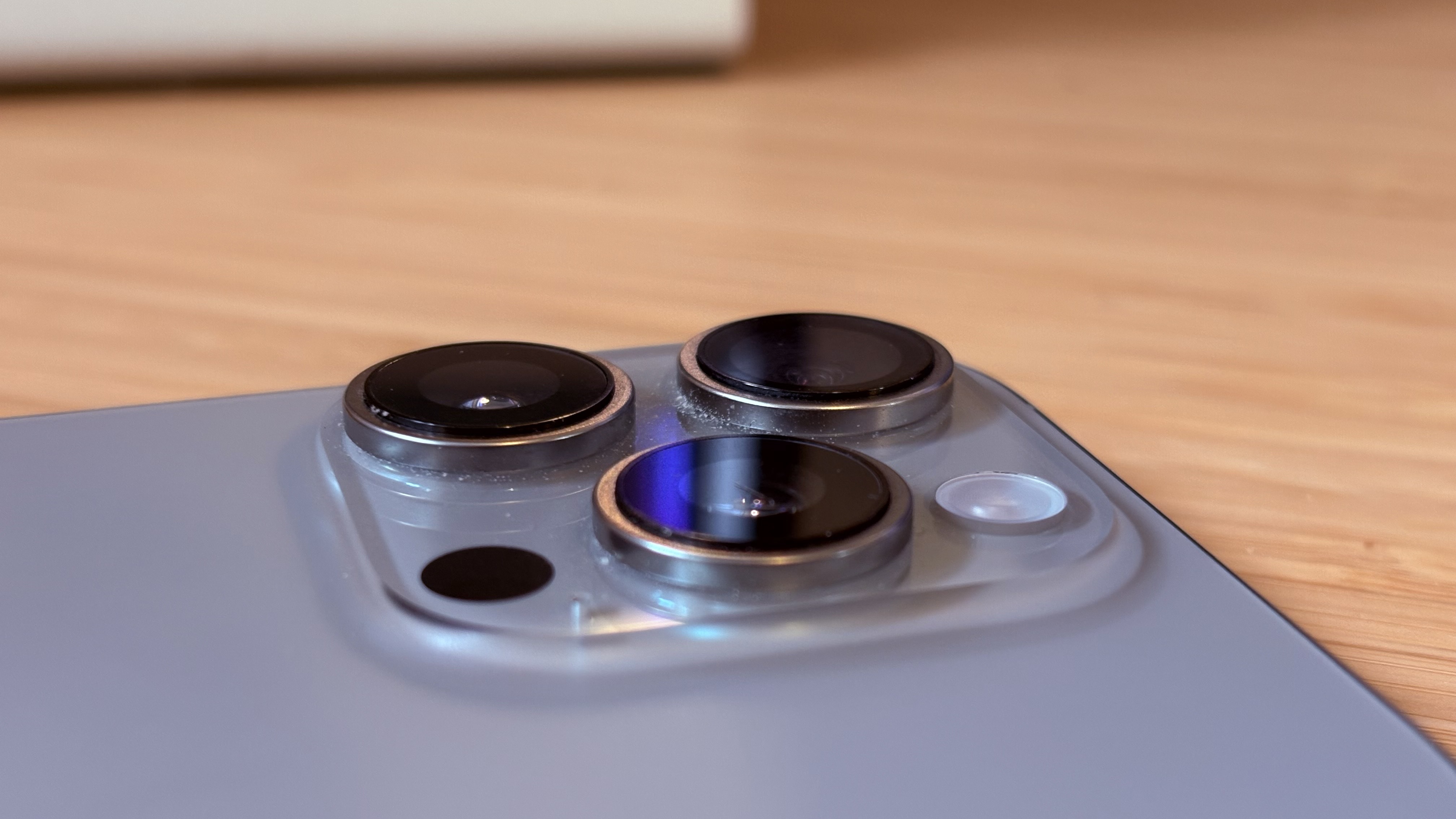
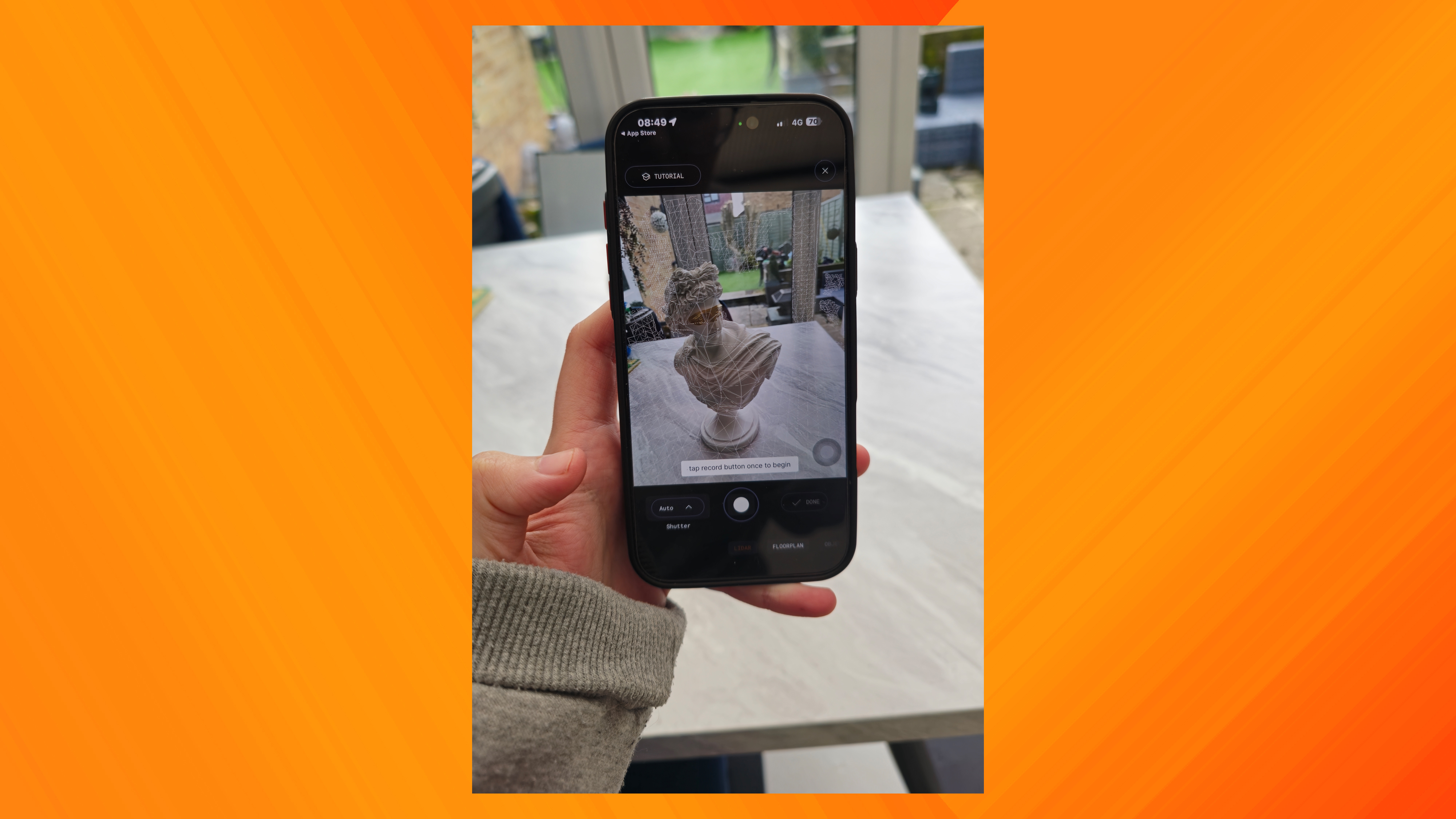
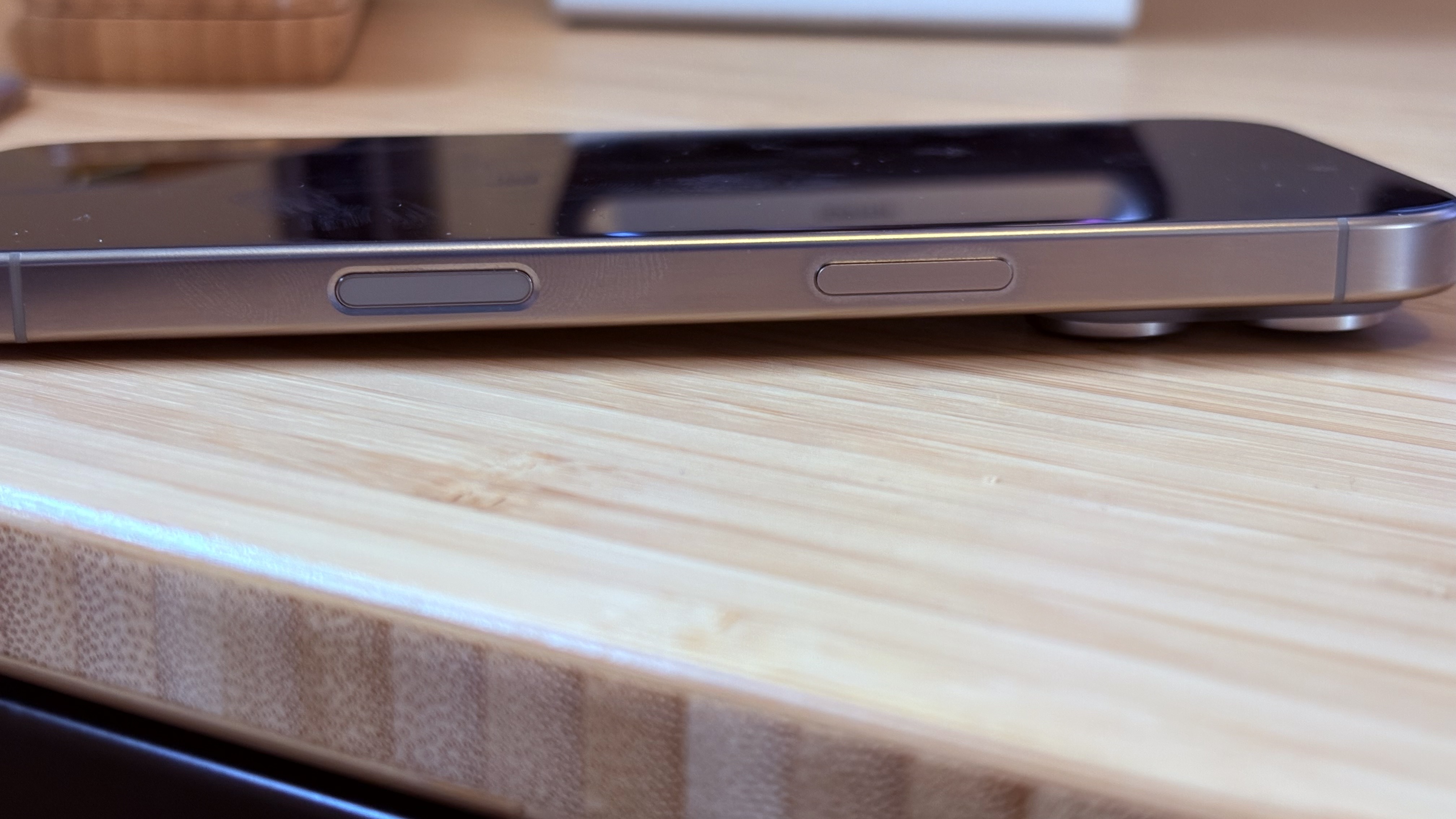
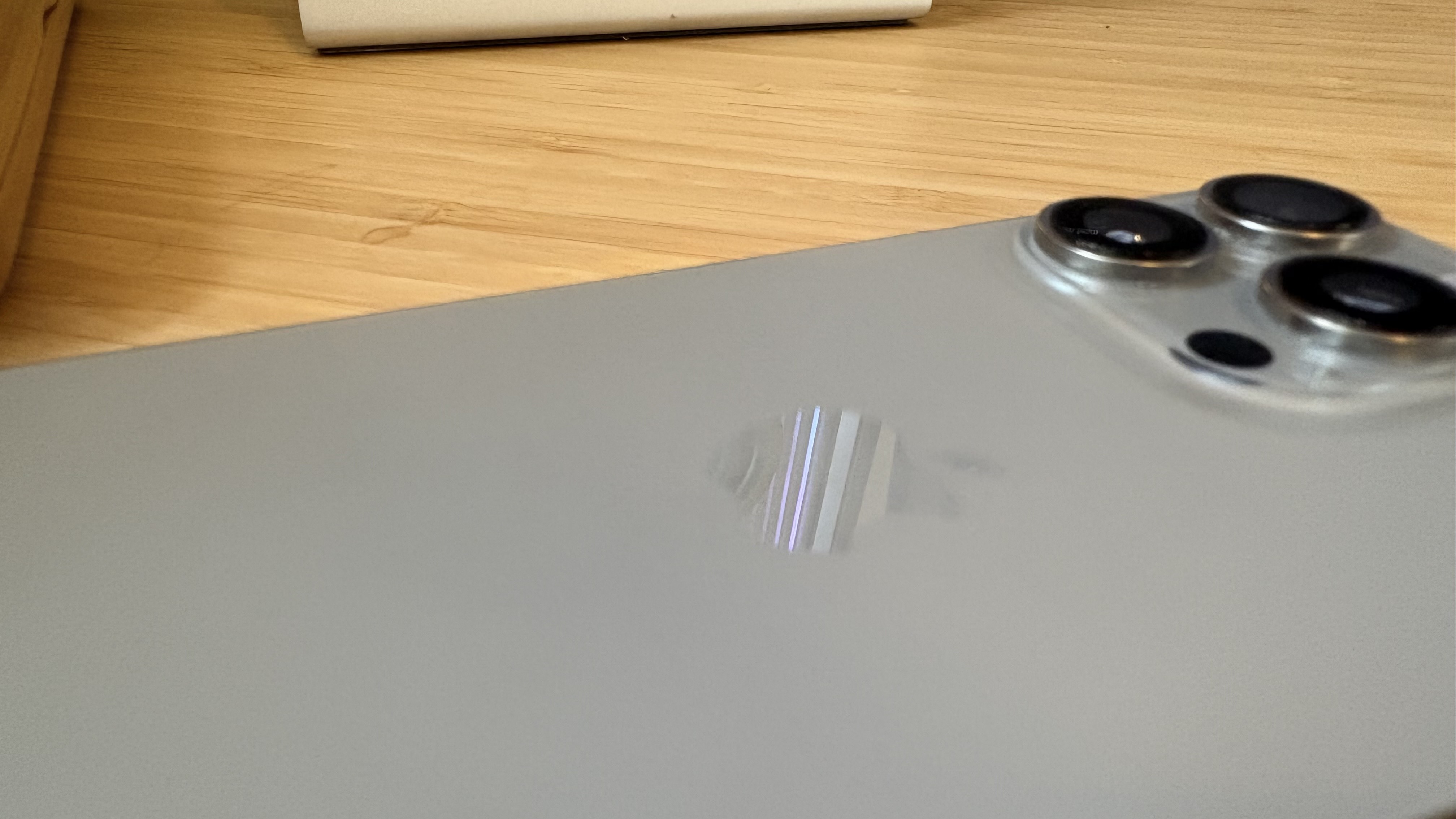
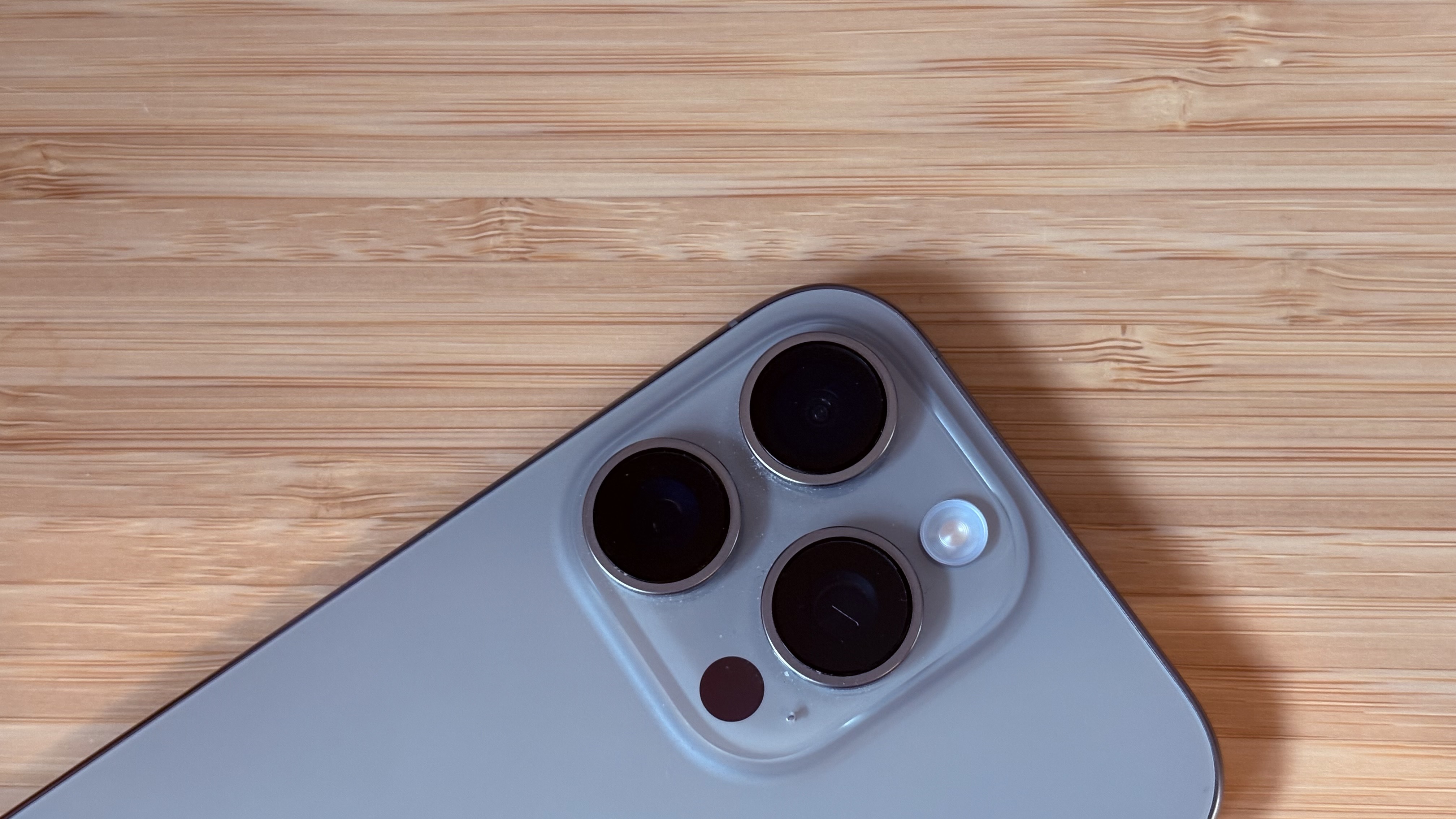
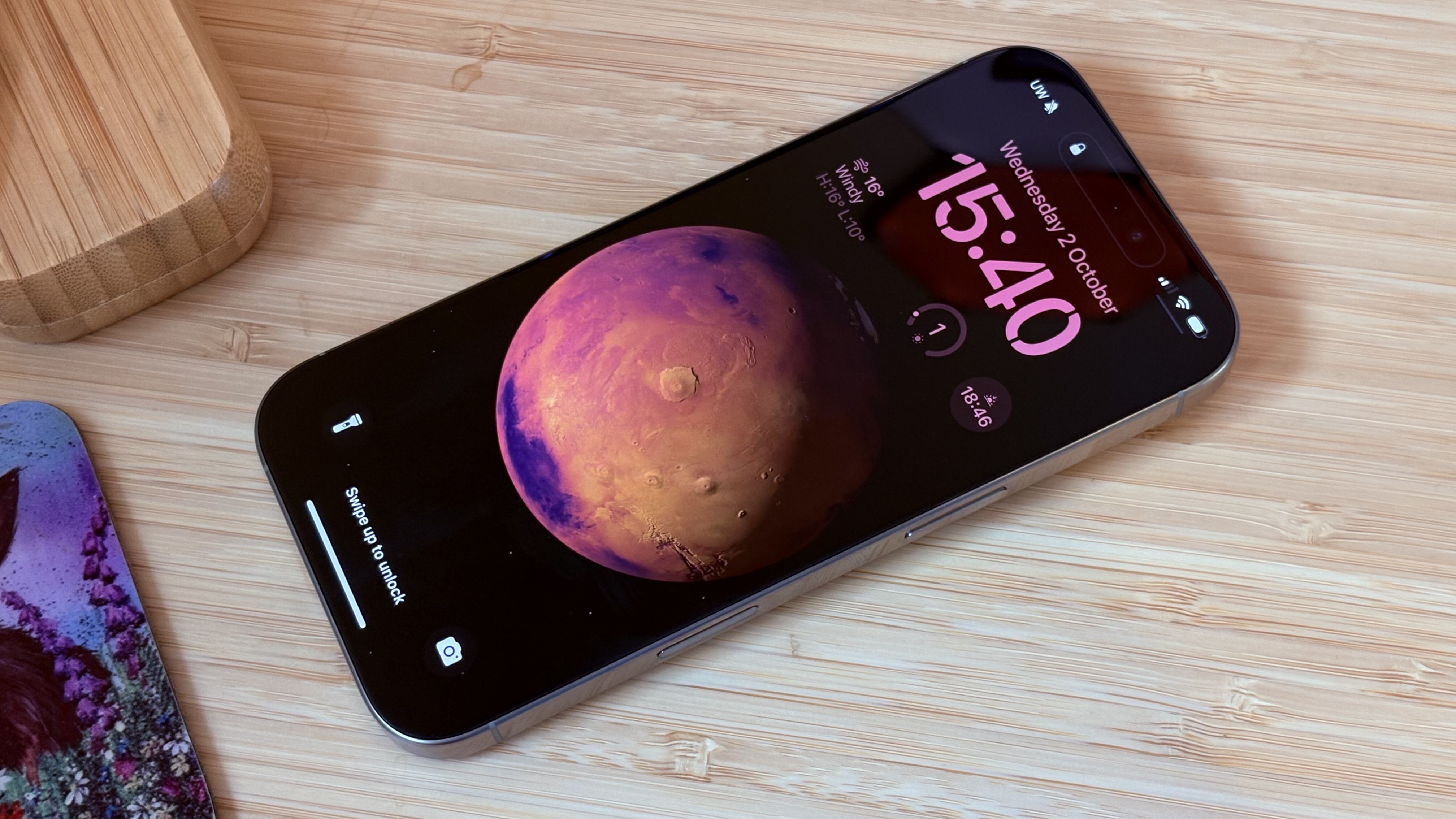
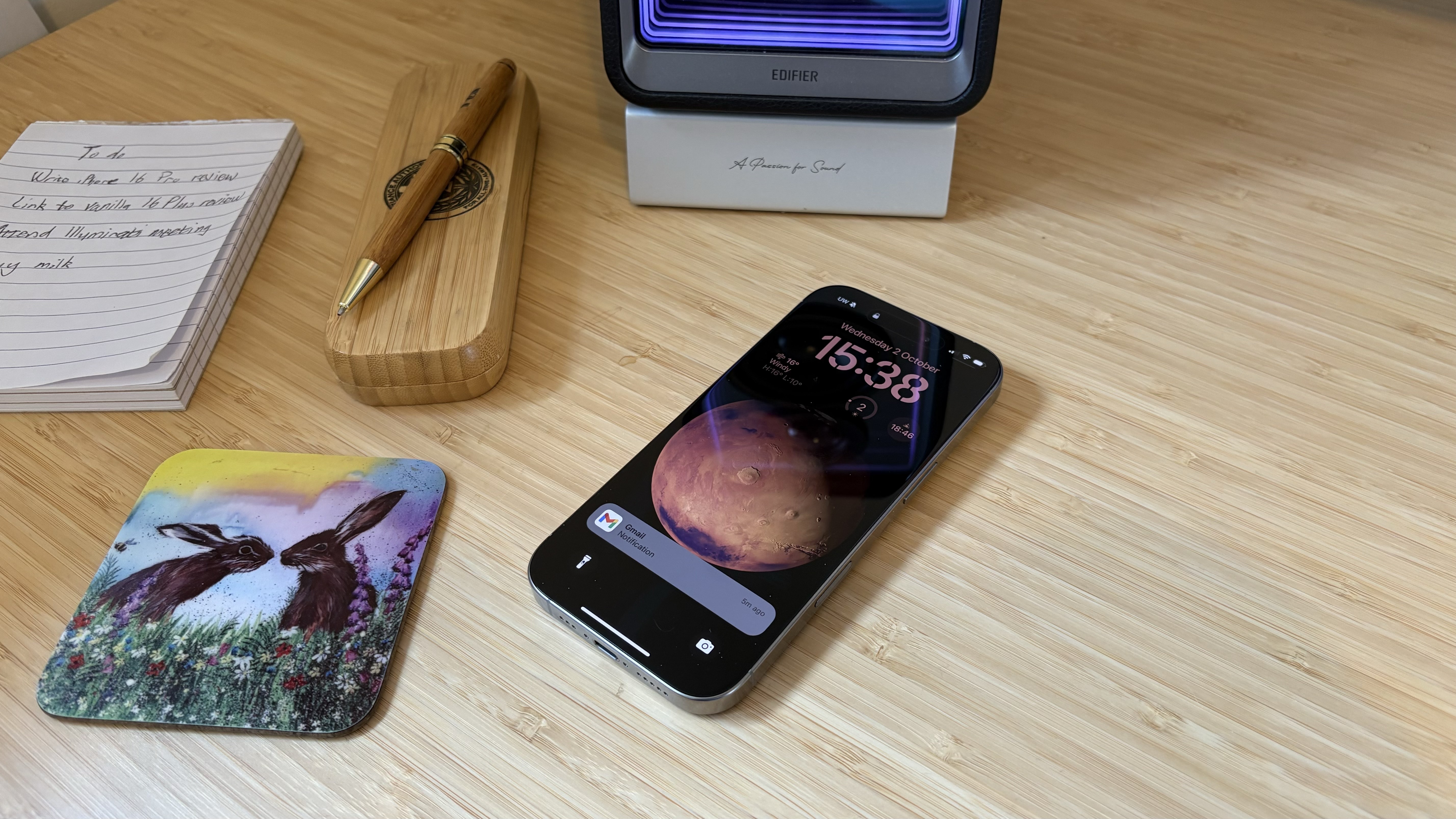
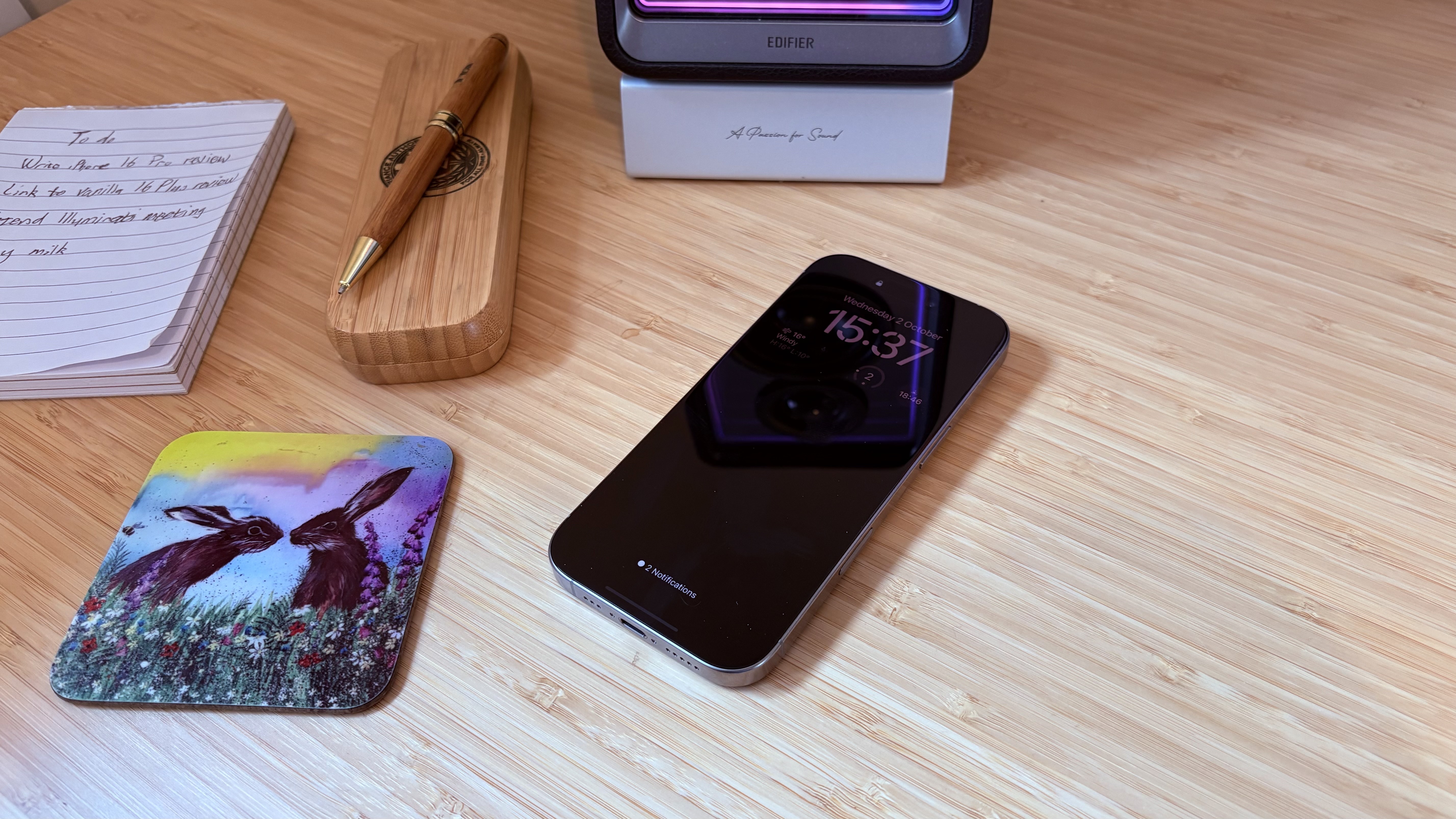
30-second review: Bit of a curveball, but the iPhone 16 Pro is an excellent 3D scanner. Yes, sometimes the best tool is the one you (may) already have. Since the release of the iPhone 13 Pro, the LiDAR Scanner has been used as part of the AR solution for creatives and as a 3D scanner. A wide range of apps can turn your iPhone into a portable or tripod-mounted 3D scanner.
Pricing: The iPhone 16 Pro starts at $999-£1,199 (£999-$1,199) depending on storage capacity. While expensive solely as a 3D scanner, it becomes cost-effective if you need both a high-end smartphone and 3D scanning capabilities. In other words, it's a good option if you're upgrading your phone anyway.
Features: While not as accurate or sophisticated as the other devices mentioned in my list, the iPhone is still a perfect stepping stone for those artists curious about 3D scanning. And I'm not the only person saying this: Metahuman Animator from Epic Games is a feature of Unreal Engine than can use depth footage from an iPhone to scan an actor's performance and render the mocap data into a 3D, animated model.
See our iPhone 16 Pro review for a general analysis of the phone.
Best money-no-object 3D scanner
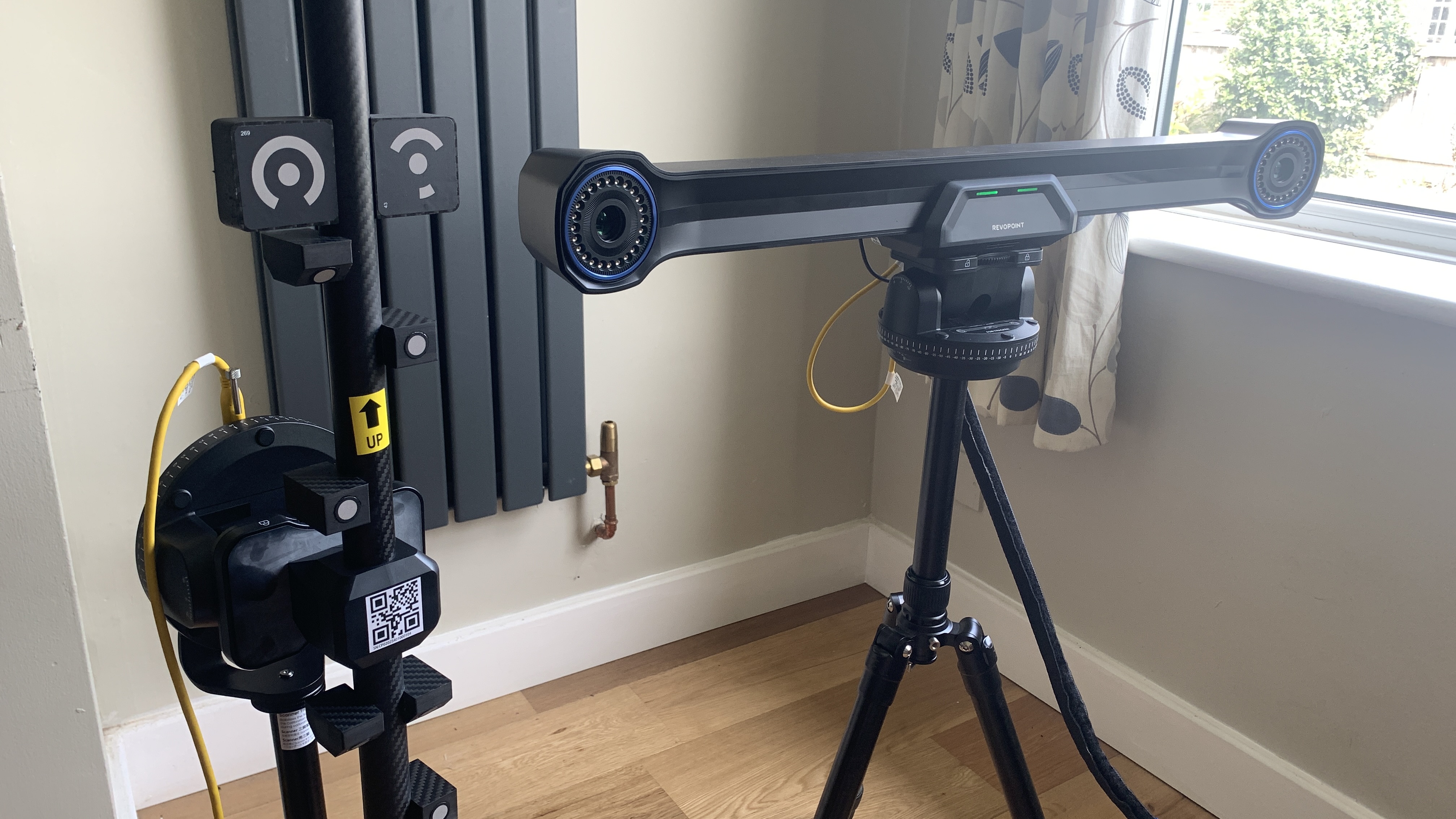
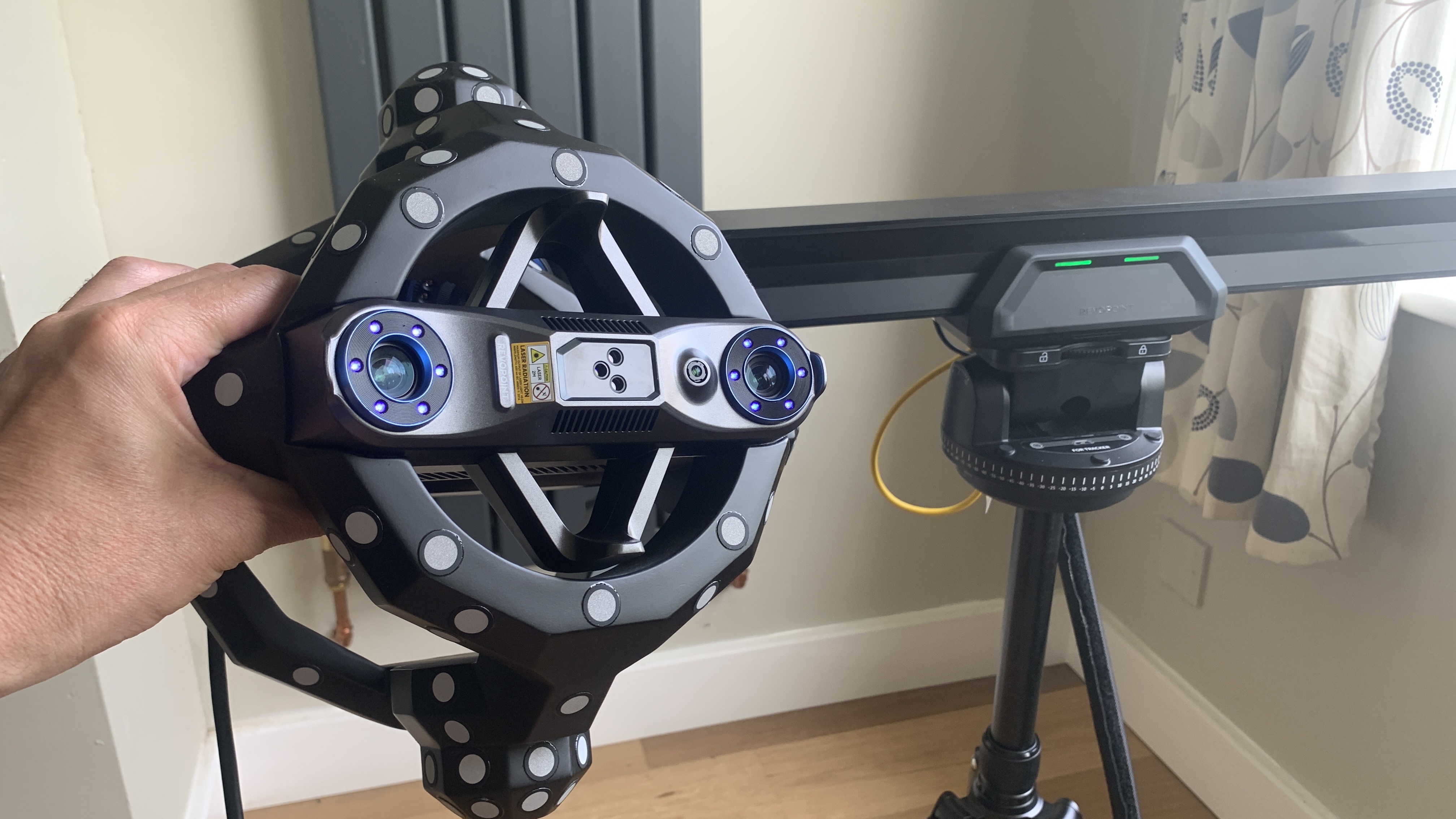
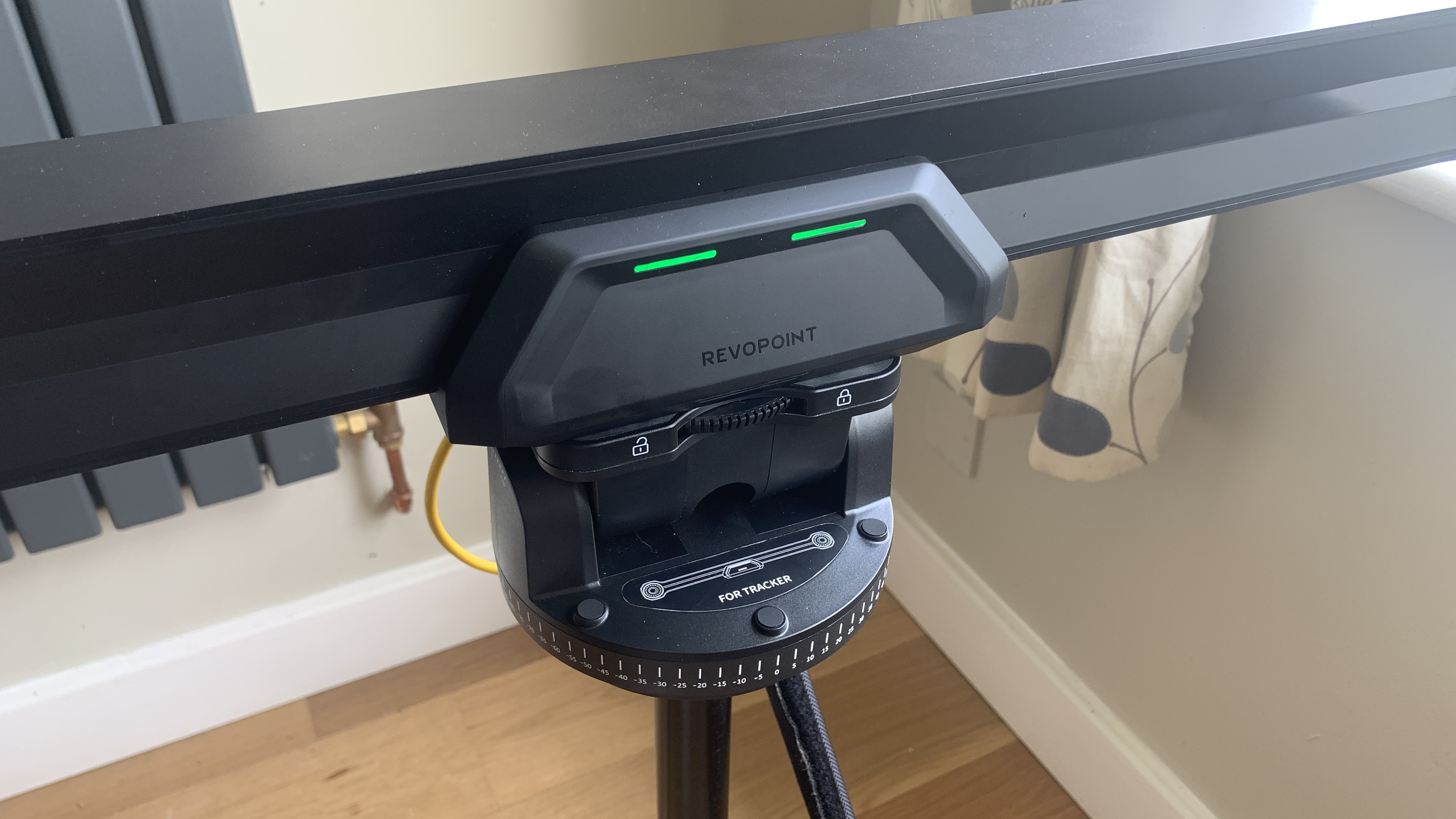
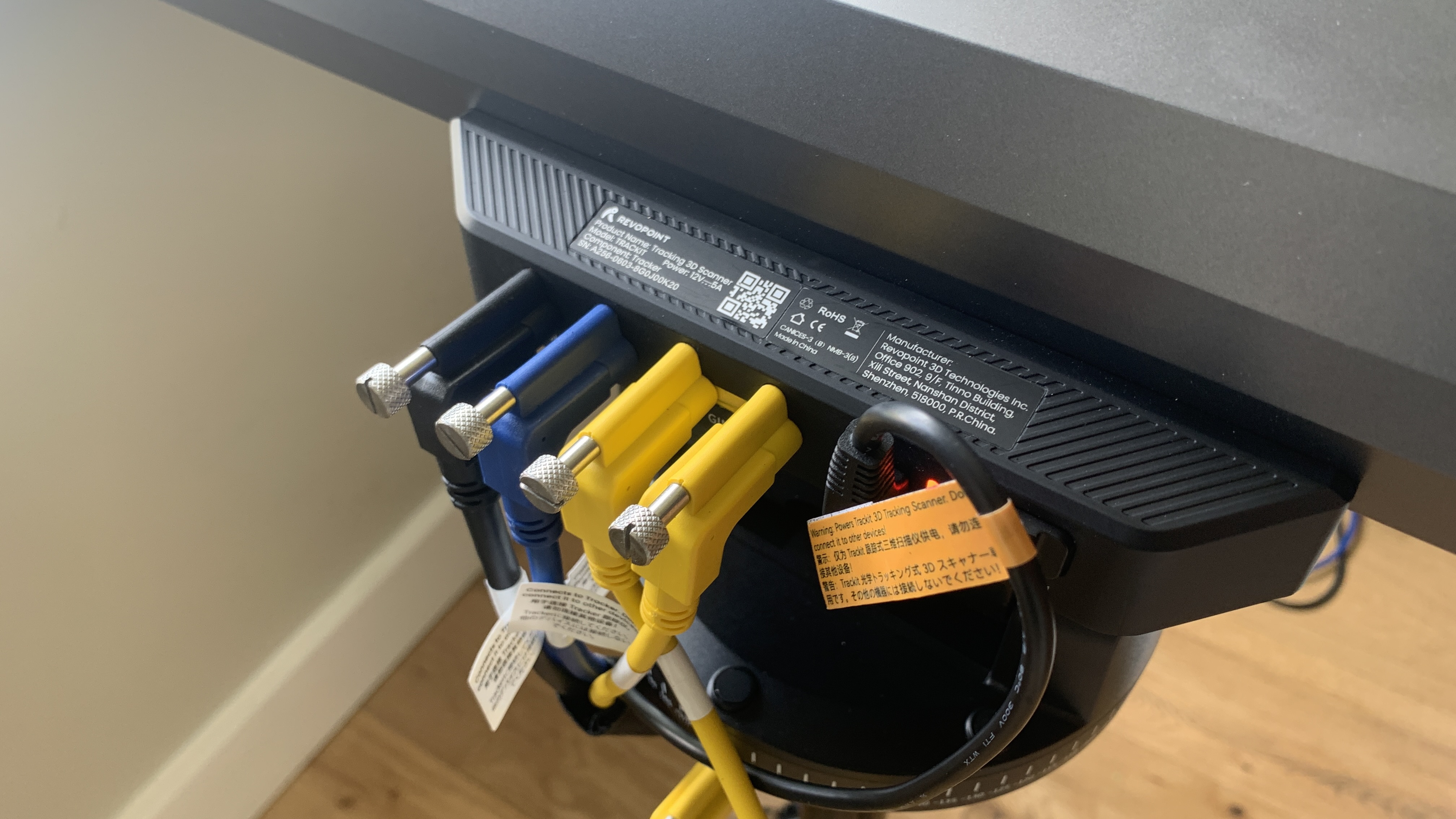
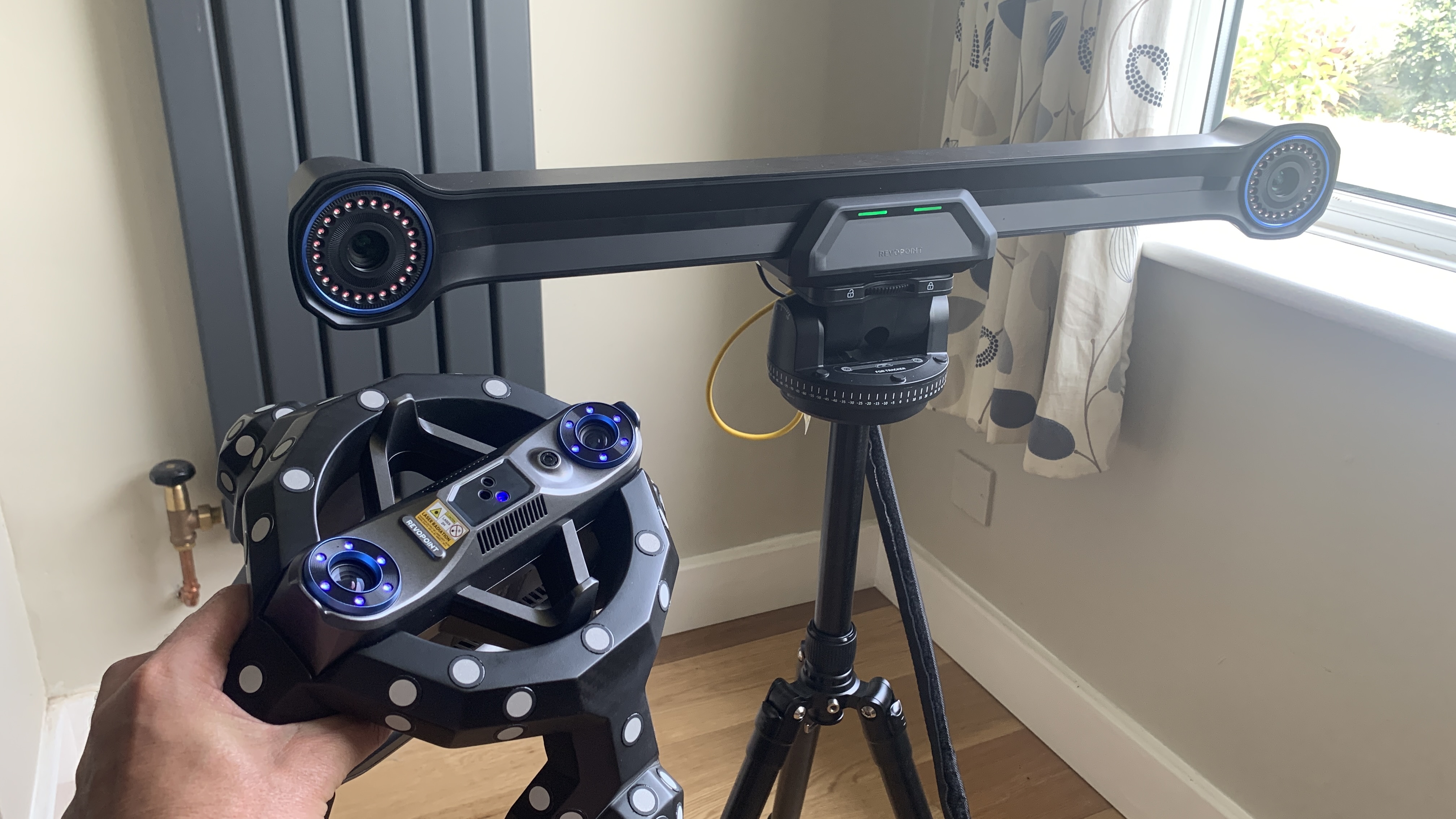
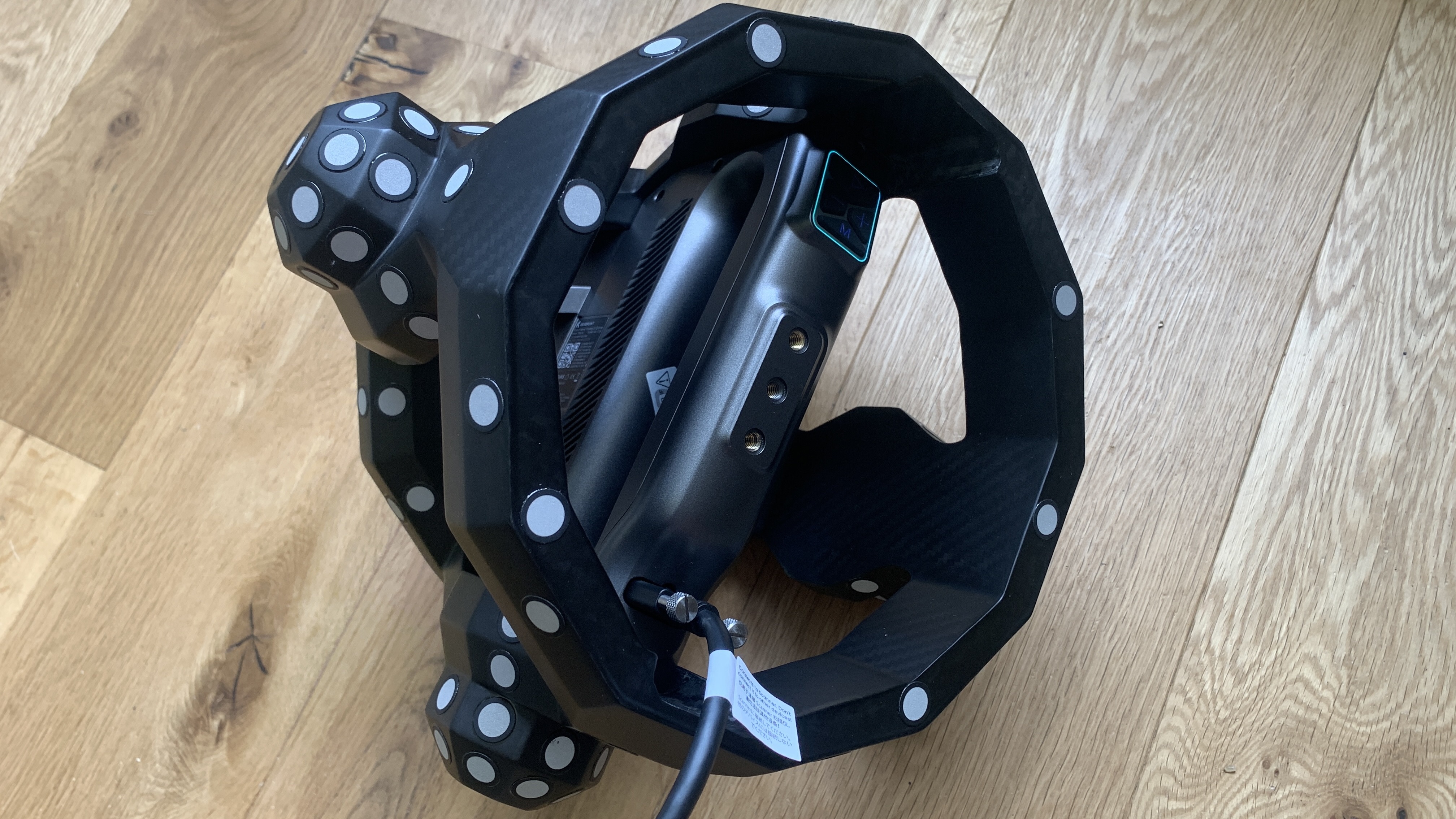
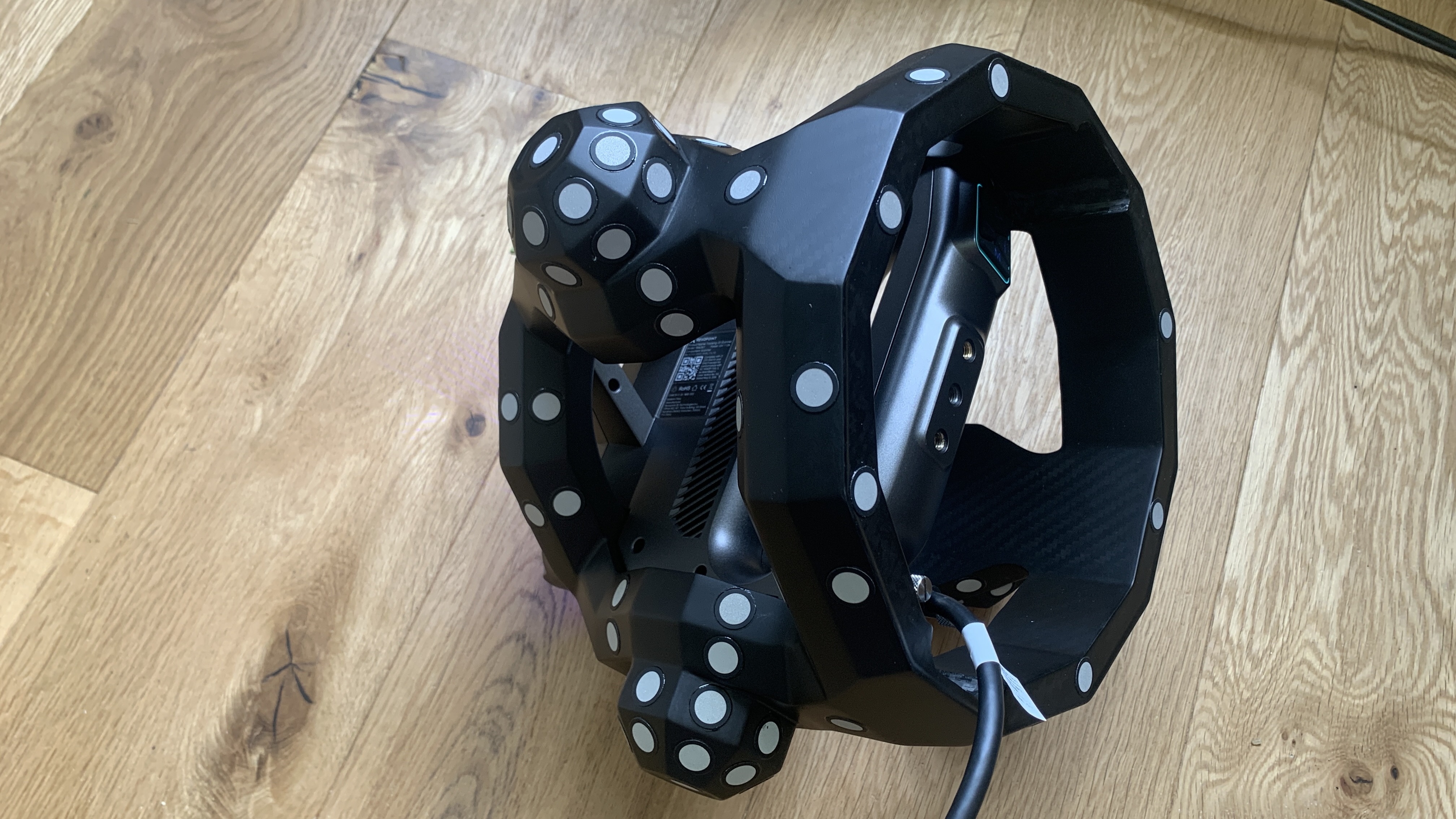
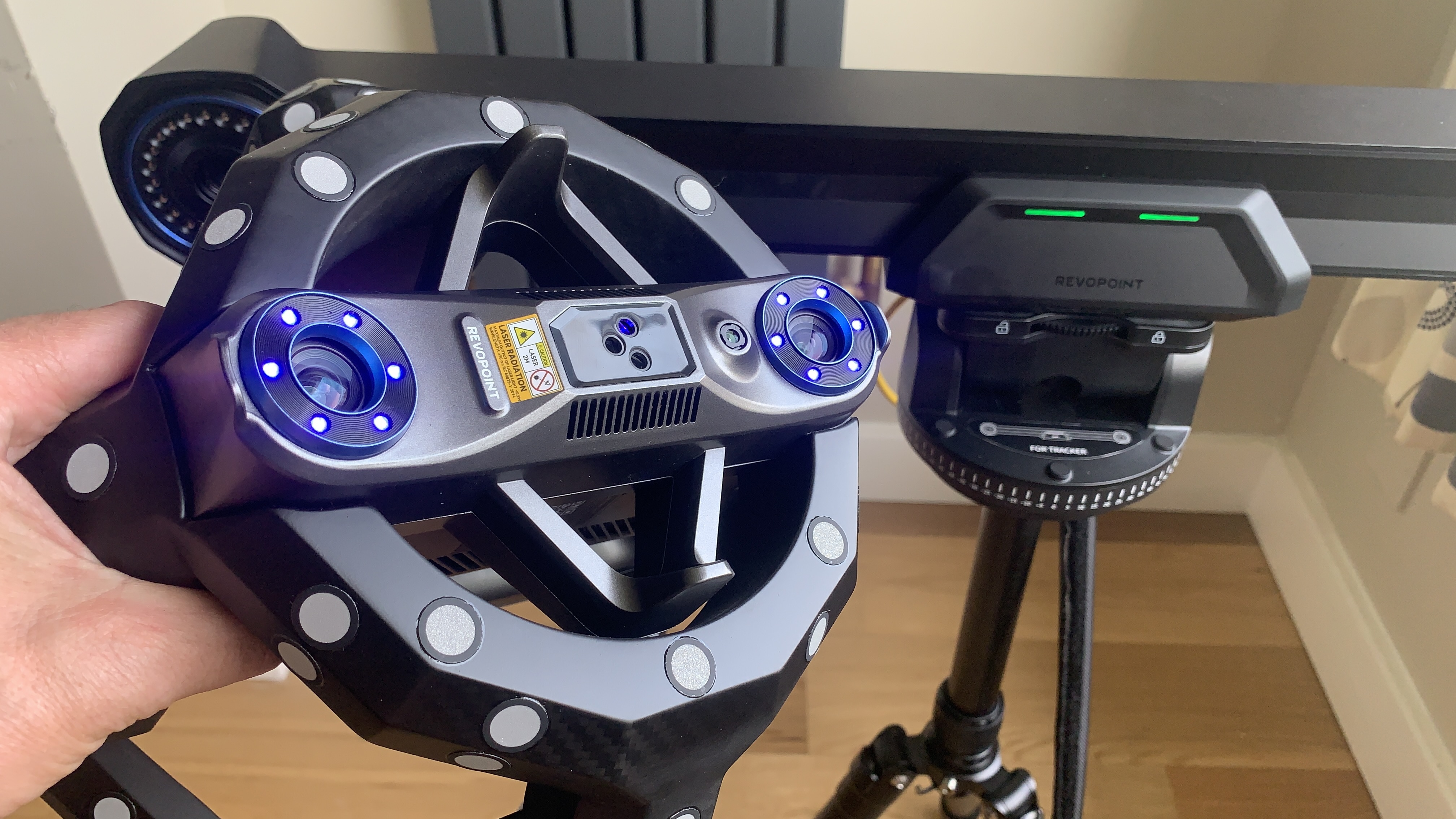
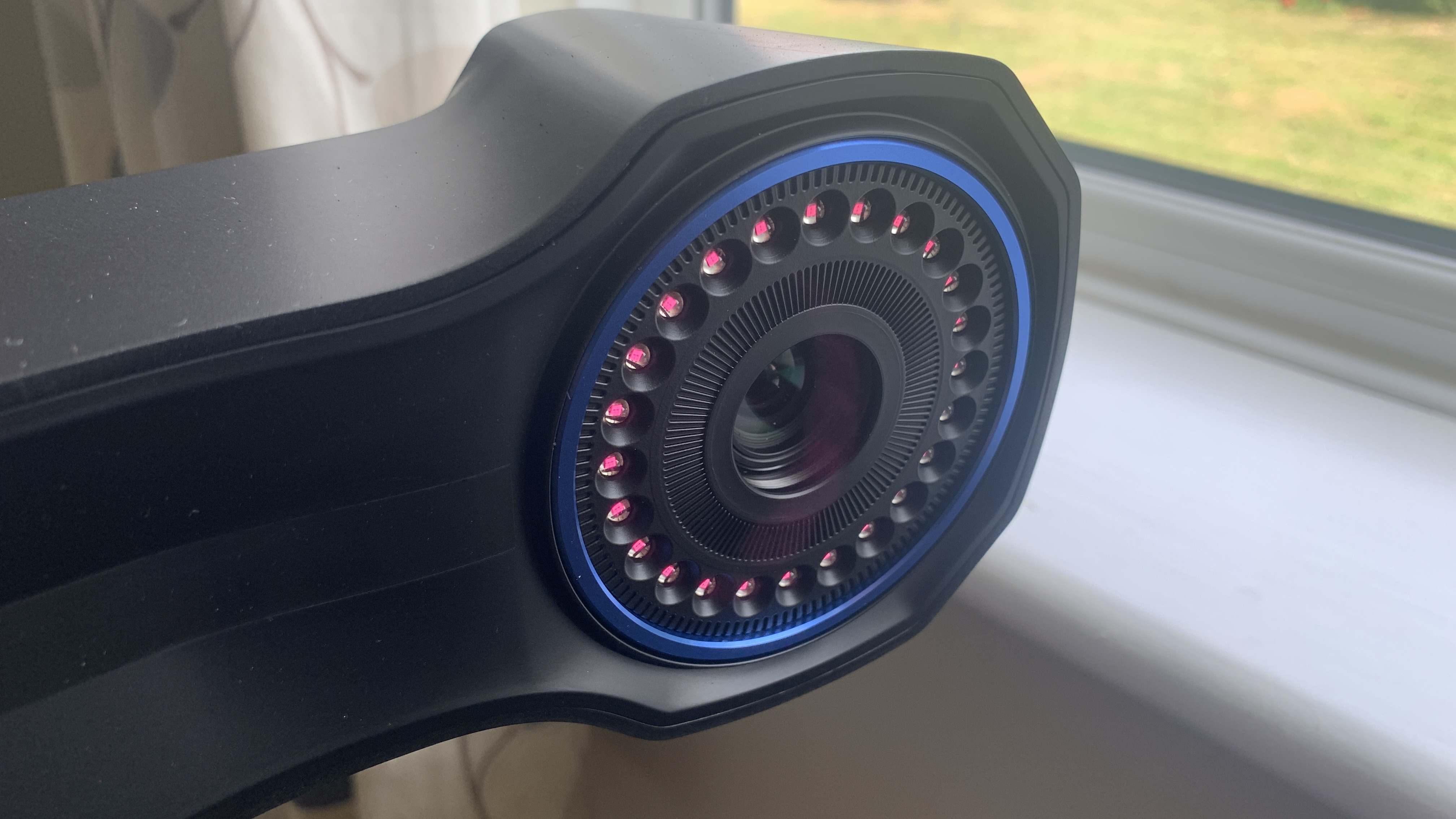
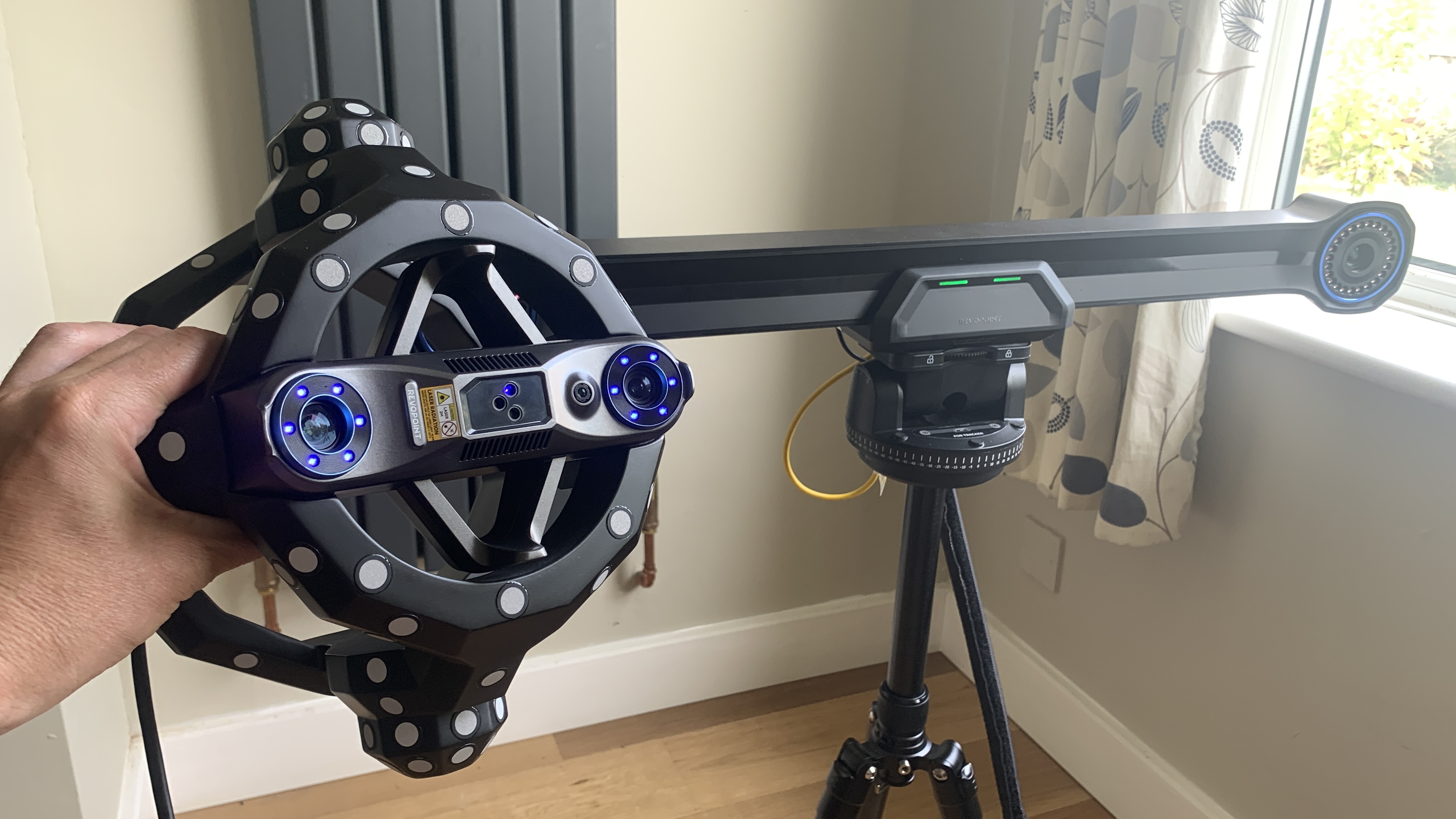
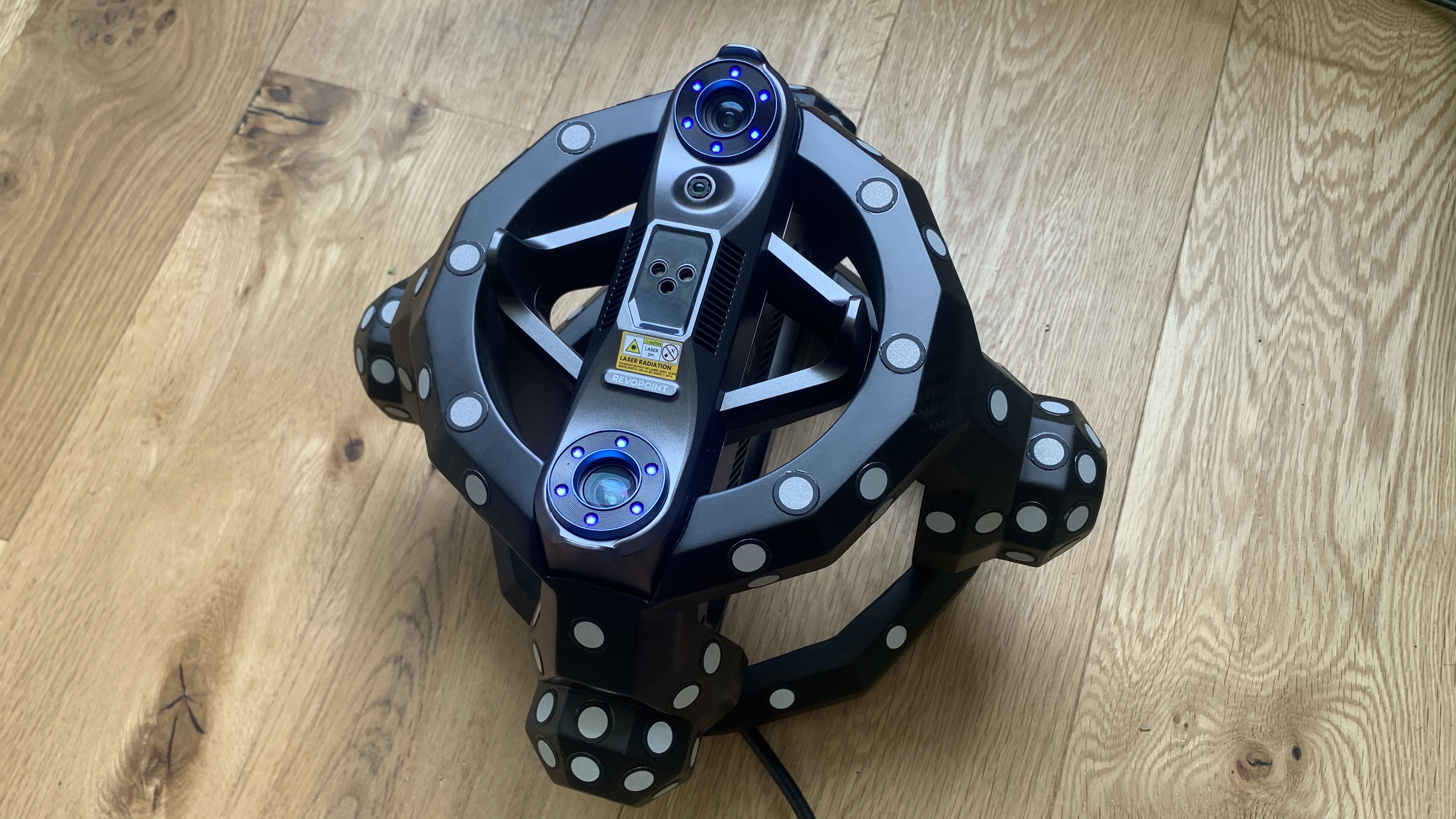
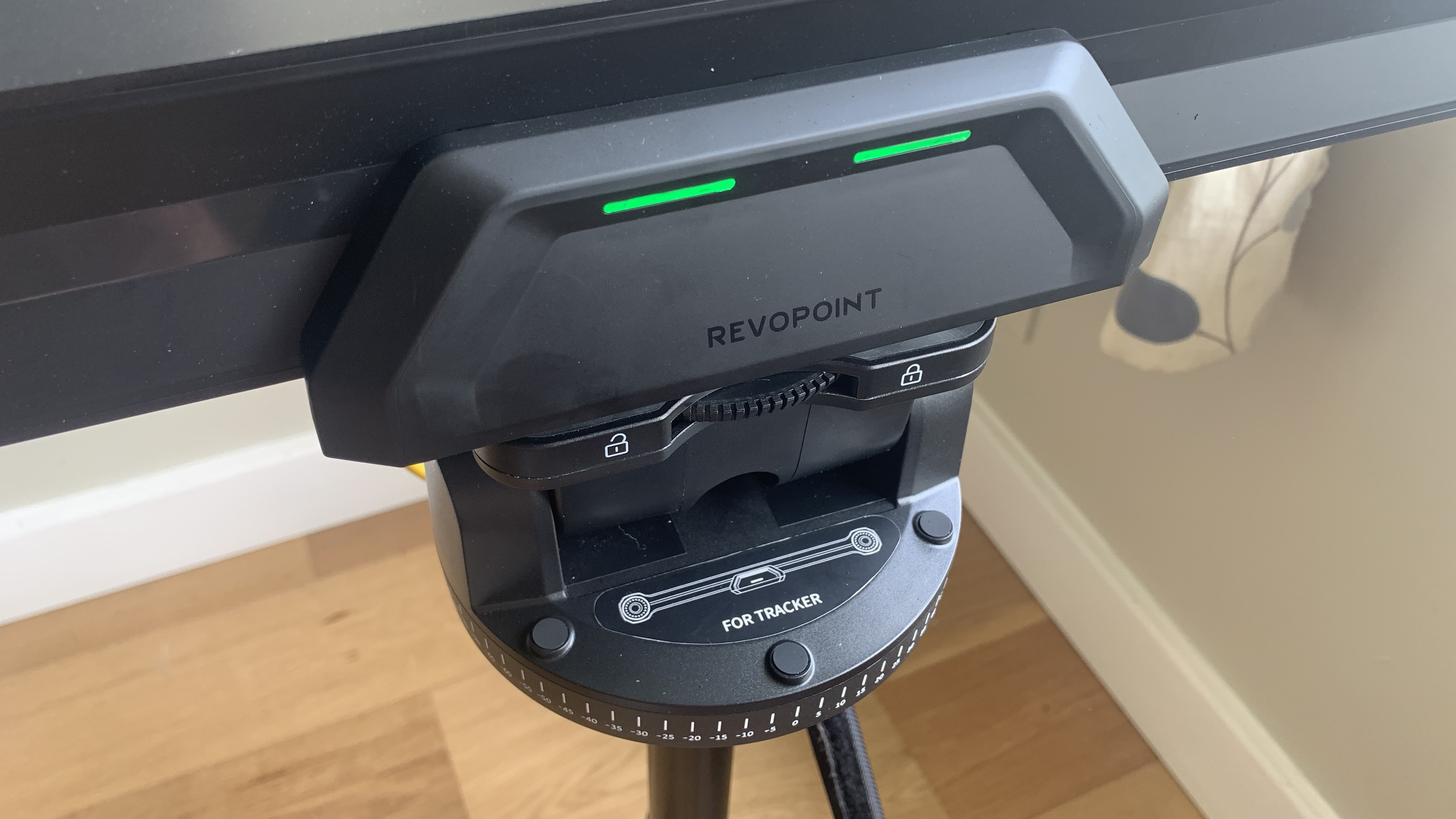
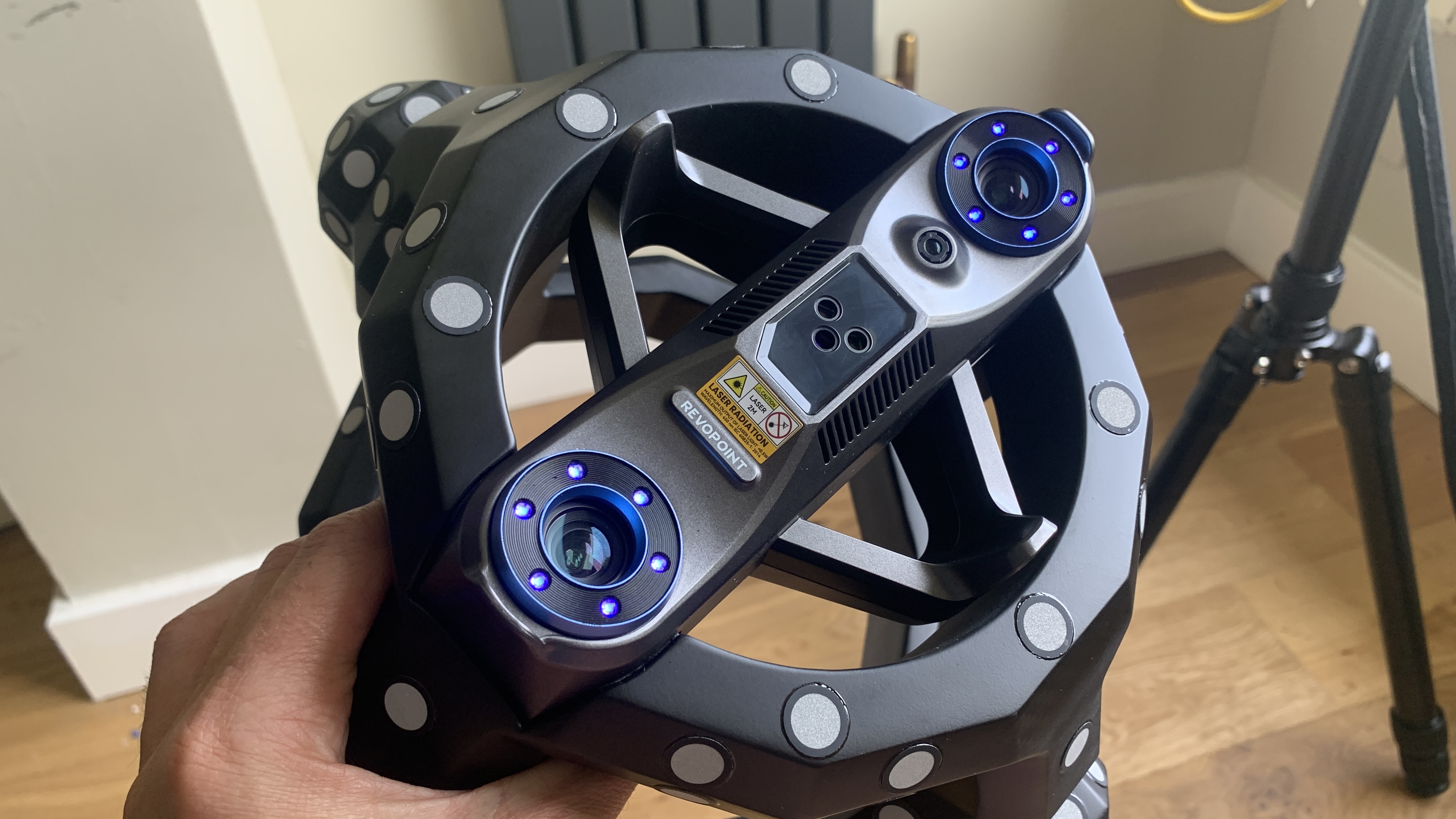
30-second review: This is the most advanced and expensive 3D scanner we've reviewed at Creative Bloq, so naturally it was a shoe-in for inclusion in this guide – as long as you've got deep enough pockets for it. Its dual-camera base station has markers all over it, eliminating the need for placing markers on the object you're scanning, which significantly speeds up workflow.
Pricing: As mentioned, this is not what you'd call a cheap option. The nominal cost from the Revopoint website is $4,980 / £4,385 for the Trackit scanner, and while discounts are quite common, you're still looking for a significant outlay. It is, however, a significant timesaver, so could be worth the investment for busy professionals.
Features: This is a hugely impressive scanner that delivered exemplary performance in our testing. The markerless scanning process really is a colossal timesaver, and the lightweight design and long cables make it easy to move the Trackit around to scan larger objects. With a volumetric accuracy of 0.025mm + 0.04mm x L(m) and the ability to scan up to 1.5 million measurements per second, this scanner absolutely chews through tasks. It requires a fair amount of space, and can take a while to set up, so is best for those with their own studio space where they can leave it set up, rather than casual hobbyists. If you're someone who needs (i.e. can financially benefit from) its speed and accuracy, I think this 3D scanner could be one of the soundest investments you make.
See our Revopoint Trackit review for more details on this highly impressive scanner.
3D scanners we've also tested
How to choose the right 3D scanner
To choose the right 3D scanner for you, you need to consider a series of key factors. Firstly, what will you be scanning? Object size, detail level and desired accuracy will all point you towards the kind of scanner you need, and we've mentioned these details for each scanner above.
Also think about budget. 3D scanners range from budget-friendly phone attachments to high-end industrial models costing tens of thousands. Determine how much you're willing to spend and prioritise features accordingly. Another factor is ease of use. Some scanners require extensive training, while others are more user-friendly. Finally, ensure the device's software is compatible with your hardware and operating system.
How we test 3D scanners
When we review 3D scanners, we test their accuracy, reliability, and performance. Our evaluation typically involves a series of comprehensive assessments to validate the scanner's ability to capture and reproduce three-dimensional objects with precision. Initial tests focus on the scanner's calibration, verifying that it accurately interprets spatial dimensions and distances. We also evaluate resolution, examining the device's ability to capture fine details, and speed of operation.
FAQs
Are 3D scanners worth the money?
While you can create 3D scans of small objects from a phone these days, you'll soon find the resolution lacking if you need to create professional models for games or AR and VR. So a high-resolution, dedicated 3D scanner with proper software to tidy-up and refine scans is important. So yes, for the best results a 3D scanner is needed.
How much should I pay for a good 3D scanner?
While there are cheap options, a good price for a 3D scanner from a reputable brand is around $500 / £400. This can go up to around $1,000 / £1,000 if you need a more professional 3D scanner with better resolution and accuracy.
What app do I need to 3D scan on an iPhone?
I'd recommend Polycam to create 3D scans using an iPhone or iPad (read our iPad generations feature to find which is best for you). This will capture 3D scans using the LiDAR sensor and you can edit the results in your mobile or tablet.
Are 3D scanners accurate?
The accuracy of 3D scanners is generally within 0.01mm and 0.1mm. The ability to scan details to less than 0.1mm in the range of detail available can lead to dense meshes, which the software with the scanner may be able to optimise. This creates an incredibly accurate 3D model of the item you wish to scan - the best 3D scanners are not just convenient, but are also very effective.
Is photogrammetry better than 3D scanning?
Overall, photogrammetry is better for realism and for scanning large rooms and spaces. But it's expensive and requires more work to generate models, if you need quick and accurate 3D models of small objects, 3D scanning is relatively cheap, very accurate and easy.







